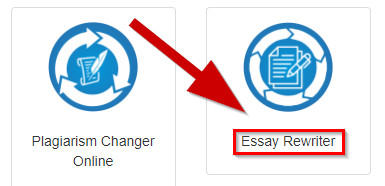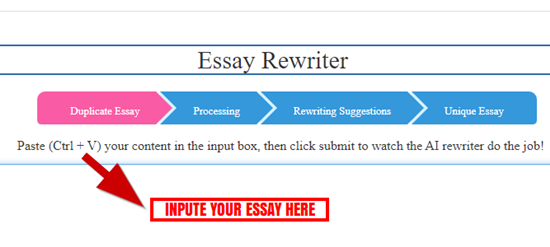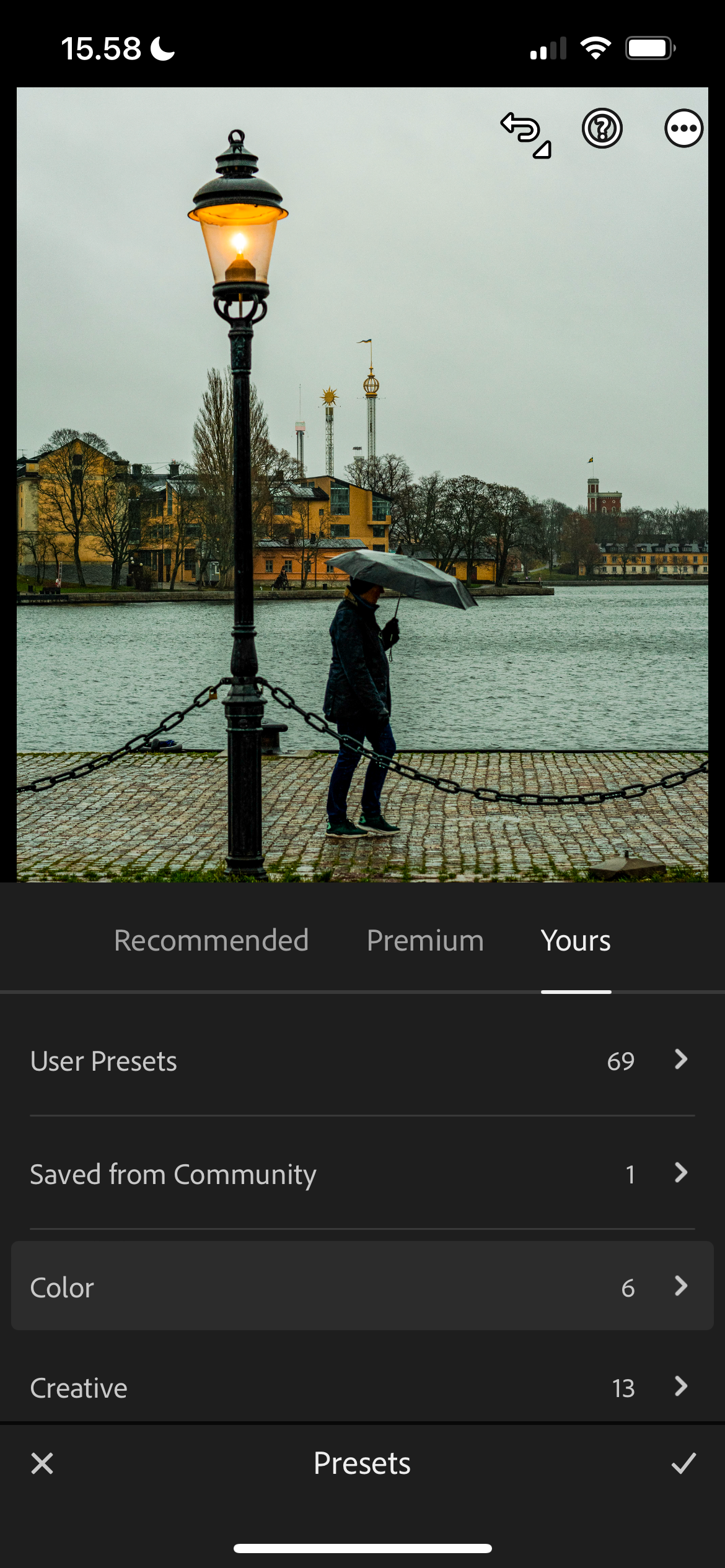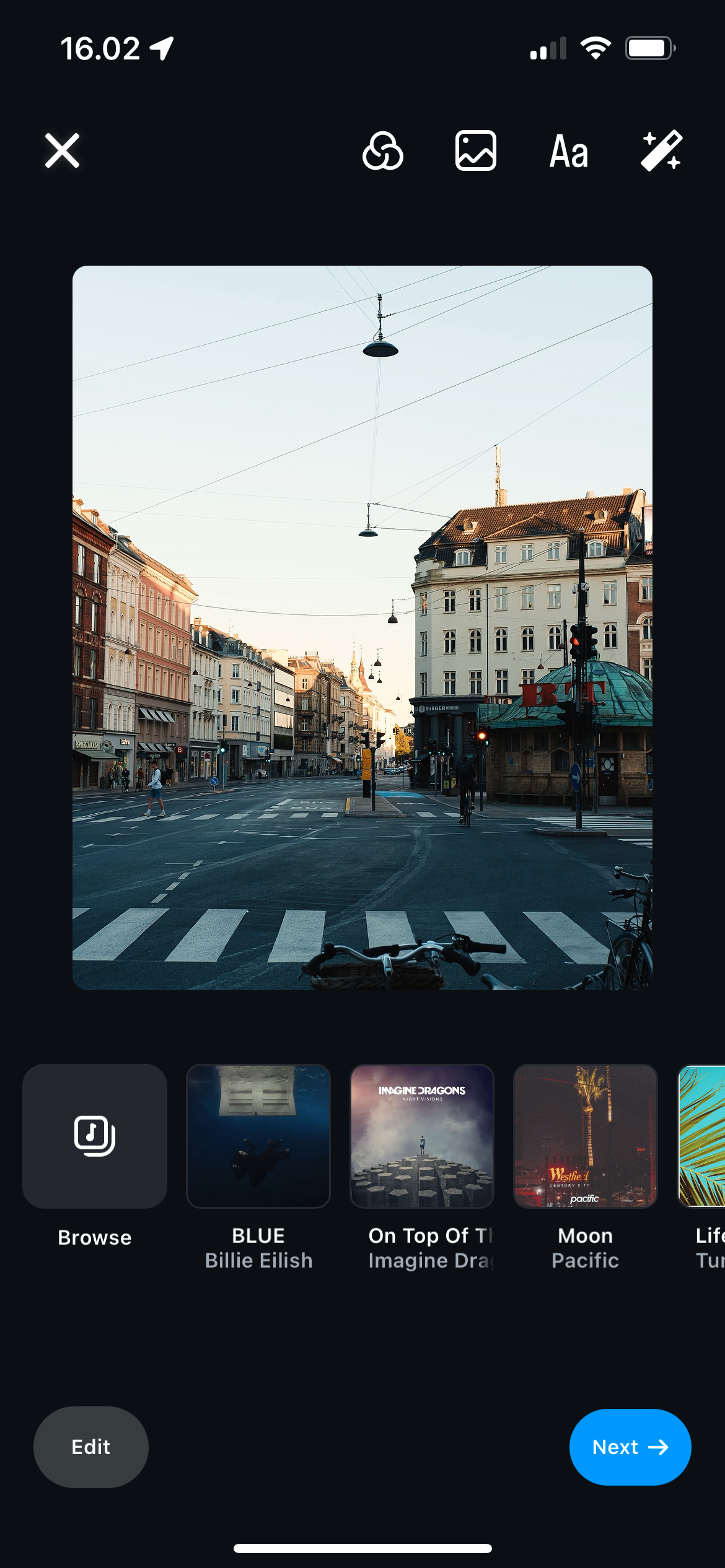- [email protected]
- (650) 338-8226

Cupertino, CA

- Our Philosophy
- Our Results
- News, Media, and Press
- Common Application
- College Application Essay Editing
- Extracurricular Planning
- Academic Guidance
- Summer Programs
- Interview Preparation
Middle School
- Pre-High School Consultation
- Boarding School Admissions
College Admissions
- Academic and Extracurricular Profile Evaluation
- Senior Editor College Application Program
- Summer Program Applications
- Private Consulting Program
- Transfer Admissions
- UC Transfer Admissions
- Ivy League Transfer Admissions
Graduate Admissions
- Graduate School Admissions
- MBA Admissions
Private Tutoring
- SAT/ACT Tutoring
- AP Exam Tutoring
- Olympiad Training
Research Programs
- Science Research Program
- Humanities Competitions
- Passion Project Program
- Ad Hoc Consulting
- Athletic Recruitment
- National Universities Rankings
- Liberal Arts Colleges Rankings
- Public Schools Rankings
Acceptance Rates
- University Acceptance Rates
- Transfer Acceptance Rates
- Supplemental Essays
- College Admissions Data
- Chances Calculator
- GPA Calculator
National Universities
- College Acceptance Rates
- College Overall Acceptance Rates
- College Regular Acceptance Rates
- College Early Acceptance Rates
- Ivy League Acceptance Rates
- Ivy League Overall Acceptance Rates
- Ivy League Regular Acceptance Rates
- Ivy League Early Acceptance Rates
Public Schools
- Public Schools Acceptance Rates
- Public Schools Overall Acceptance Rates
- Public Schools Regular Acceptance Rates
- Public Schools Early Acceptance Rates
Liberal Arts
- Liberal Arts Colleges Acceptance Rates
- Liberal Arts Colleges Overall Acceptance Rates
- Liberal Arts Colleges Regular Acceptance Rates
- Liberal Arts Colleges Early Acceptance Rates

The “What Makes You Unique?” Essay

By Eric Eng

The college application process is a journey of self-discovery, reflection, and articulation of one’s identity. The “what-makes-you-unique” essay is a pivotal opportunity to express who you are and what you bring to the table.
This essay is more than just a written document; it’s a window into your soul, a chance to convey your individuality, and a platform to showcase what makes you unique. It’s not about boasting or trying to impress with grand achievements; it’s about honesty, introspection, and the courage to share your true self with the admissions committee.
Why Is the “What-Makes-You-Unique” Essay Important?
In a sea of qualified applicants, the “what-makes-you-unique” essay serves as a distinguishing factor that sets you apart. Colleges and universities are not merely looking for high grades or impressive extracurriculars; they are seeking individuals who will contribute something special to their community.
What makes you unique is not just a catchphrase; it’s a question that invites you to delve into your passions, values, and the very essence of who you are. This essay is your chance to demonstrate how your unique perspective, experiences, and aspirations align with the institution’s mission and how you will enrich the campus culture.
Understanding the purpose of uniqueness in college applications
The concept of uniqueness in college applications goes beyond mere differentiation. It’s about showcasing your authentic self and how your individuality will contribute to the diverse tapestry of the college community.
Understanding what makes you unique requires a deep exploration of your interests, strengths, and the values that guide your life. It’s not about trying to fit a mold or conforming to what you think the college wants to see.
Instead, it’s about embracing your true self and articulating how your uniqueness will add value to the educational environment. This understanding guides the writing process, ensuring that your essay resonates with sincerity and relevance.
How do you write an essay about yourself?
How does one go about writing an essay about themselves? We get it. It’d be that boasting about oneself isn’t your thing, or that you just prefer to keep your personal anecdotes to yourself. Both of these are perfectly valid reasons.

But if you are honest about who you are and share your experiences, you may demonstrate to prospective colleges and universities, and even scholarship sponsors, who you are and why you ought to be given the coveted spot . When you are writing an essay about yourself, keep in mind the following points:
Make a List of Questions
After you have finished reading the scholarship essay prompt, take a moment to collect your thoughts and create a list of several questions that you are able to answer and that are connected to the main question posed in the essay prompt.
Let’s imagine the major question that prompts you to write your essay asks, “What were the obstacles or problems that you had to work hard to overcome?” The more specific inquiries could be anything along the lines of:
What is your background?
What makes you unique in terms of overcoming challenges? What’s your greatest accomplishment? How did you get there? How have previous challenges influenced your goals?
Consider each of these questions a little provocation on its own. They assist you in describing your tale and answer the main essay prompt with more details than you would be able to provide if you simply responded to the prompt without having a plan in place.
Conceptualize and Outline
After you’ve thought about the more specific questions, it’s time to come up with some replies. Take some time to respond to each of the mini-prompts, and for your convenience, you can either open a document on your computer or get out a pen and paper.
Arrange your answers in the following order:
- Intro to the main essay prompt.
- Answer about 3 mini-prompt questions.
- To conclude, rewrite your response to the primary essay prompt, including a synopsis of how you addressed the supplementary essay questions.
You will be able to keep on topic and directly respond to the prompt with the assistance of this organization. Outlining can also help you be strategic about word count restriction because you can compartmentalize words within the mini-prompt questions/subtopics.
Be Vulnerable
In your essay, don’t be hesitant to allow your personality, including your skills, struggles, and personal tales, to show through.
Scholarship and admissions committees absolutely adore it when applicants demonstrate an awareness of either their own personal shortcomings or the ways in which they have developed as a result of the experiences they have had.
The best stories can be told through writing that is sincere.
Utilize Personal Examples
The essay is going to be all about you, you need to make sure that your response is as detailed as it can be!
Avoid making broad statements like “I’m really good at music” or “I’m really good at everything.” Rather than that, you should focus on making statements that are more individualized (for example, “My fourth-grade teacher Ms. Matay really pushed me to pursue my passion in the clarinet”). Your own specific examples are what will set your scholarship application essay apart from the thousands of others that have been submitted.
Write in the First Person
Since you are the one narrating what makes you unique, you should write it from your point of view. You can tell your story in narrative form. You are able to submit a summary of what you discovered from your various encounters.
No matter how you decide to respond to the question, we advise you to write in an active voice and make frequent use of the pronouns “I” and “me” throughout your essay.
Try to discuss more but stick to the topic
The majority of students are concerned about bragging too much about themselves in their essays, but we say go for it! This is your moment to shine, so make the most of it by highlighting your previous successes and qualities.

Check over your essay to make certain that you are maintaining an informative tone and that you are staying on the topic at all times. (Brag about yourself when you’re answering the essay prompt; don’t just list random things about yourself that have nothing to do with each other but are remarkable!)
Show Personality
Given that this essay is all about you, it is important to convey your own message of what makes you unique. You are allowed to make light of the situation if you are the class clown. If you’re the type of person who wears their feelings on their sleeve, don’t be scared to show how you feel.
Making an effort to convey who you are as a person will have a significant impact on the panel deciding whether or not to grant you admission or a scholarship.
Know Your Audience
Always do your homework on the organization offering the scholarship before applying for it. This may not necessarily mean that you need to write an essay worthy of a Pulitzer nomination, but you need to be conscious of including vital information about the service or college in your essay.
Furthermore, highlight what sets them apart from other providers or colleges and what motivated you to choose them. For instance, many different scholarships are supported by private businesses in the form of product sales. You should probably make some sort of mention of those items in your essay.
Edit constantly
Checking your work again should be the final step in responding to the prompt for your essay. Even one misspelling can be distracting and make the people providing the scholarships scratch their heads while they are reading the essay. We can’t stress this enough, check for typos . In addition to checking for typos and grammatical mistakes, when you proofread, you should also examine whether the structure of the sentence or paragraph makes sense.
Are you skipping the appropriate paragraphs at the appropriate times? Are you able to effectively signpost your primary ideas by utilizing topic sentences? Does the essay read smoothly?
Also, take into consideration the following “larger” structural problems. You should also consider getting the opinion of a close friend, a member of your family, a teacher, or a guidance counselor regarding your essay. They might notice something that you missed the first time, and if they do, it could be something that truly helps your writing.
What are some ideas I could use in my personal essay?
Few people are aware of the ways in which they are unique. Because of nature, each individual human might have their own set of characteristics that are distinctive. If you are the kind of student who keeps to themselves in the classroom, always turns in their work on time, and leads a seemingly typical life, it may be difficult to appreciate how exceptional you truly are.

Having said that, everybody is odd in their own way. It is important to make sure that you ask yourself questions in order to produce the greatest possible essay. The questions will take you to the answers, which will reveal your true self. The following are some points to think about.
- Where and with whom do you live?
- What was your childhood like and how does it affect your life today?
- What makes you unique as a family member?
- What languages can you speak?
- How committed are you to your religion?
If you are having trouble identifying the possible distinguishing characteristics that you possess, you can try the following:
- Hear your friends out
- Ask your classmates to describe you
- Note down everything you know about yourself
What Are the Best Practices for Revising?
Revising your “what-makes-you-unique” essay is not merely a process of correcting errors; it’s an opportunity to refine your message, enhance your voice, and ensure that your unique qualities shine through. The best practices for revising involve a combination of self-review and external feedback, focusing on both content and form.

Seeking feedback from teachers, peers, or mentors
One of the most effective ways to elevate your essay is to seek feedback from those who know you well and those who have expertise in writing. Teachers, peers, or mentors can provide valuable perspectives on what makes you unique and how you’ve articulated it in your essay.
They can identify areas where your uniqueness may not be fully expressed or where additional examples or explanations might enhance your narrative. This collaborative process not only enriches your essay but also fosters a deeper understanding of yourself, as you see your unique qualities reflected through the eyes of others.
Reviewing for clarity, coherence, and grammar
An essay that explores what makes you unique must be clear, coherent, and grammatically correct to effectively convey your message. Clarity ensures that your unique traits and experiences are understood, coherence ensures that your ideas flow logically, and proper grammar ensures that your writing is professional and polished.
Reviewing your essay with these principles in mind requires careful reading and a critical eye. It may involve reorganizing paragraphs, rewriting sentences, or fine-tuning word choices. This meticulous attention to detail ensures that your unique story is told in a way that engages the reader and leaves a lasting impression.
Avoiding clichés and overused phrases
To truly capture what makes you unique, your writing must be fresh and original. Clichés and overused phrases can dilute your message and make your essay feel generic. Avoiding these pitfalls requires a conscious effort to express your unique qualities in a way that is genuine and distinctive.
Instead of relying on familiar expressions, strive to find your own voice and articulate your uniqueness in a way that is true to you. This doesn’t mean you have to be overly creative or unconventional; it simply means being authentic and thoughtful in your word choices.
By avoiding clichés and overused phrases, you ensure that your essay stands out, not because it’s flashy or extravagant, but because it’s a true reflection of what makes you unique.
How Can You Make Your Essay Stand Out Even More?
In the competitive landscape of college admissions, making your essay stand out is paramount. While articulating what makes you unique is the core of the essay, there are additional strategies to elevate your writing and make it truly memorable.
These strategies go beyond mere content and delve into the art of storytelling, the connection to broader themes, and the alignment with the college’s values.
Adding creative elements or a unique writing style
Creativity is not just about artistic expression; it’s about finding novel ways to convey what makes you unique. Adding creative elements or a unique writing style to your essay can transform it from a mere statement of facts into a compelling narrative.
Whether it’s through metaphor, imagery, or a distinctive voice, these creative touches add depth and texture to your story. They allow you to express your uniqueness in a way that goes beyond mere description, capturing the essence of who you are in a manner that is both engaging and insightful.
This creative approach not only enhances your essay but also reflects your ability to think outside the box and approach challenges with innovation and originality.
Connecting your uniqueness to broader societal or community themes
Your uniqueness is not an isolated trait; it’s part of a larger context that includes your community, society, and the world at large. Connecting what makes you unique to broader societal or community themes adds a layer of relevance and significance to your essay.
It shows that you are not just self-aware but also socially aware, recognizing how your unique qualities relate to larger issues or values. Whether it’s a commitment to social justice, a passion for environmental stewardship, or a dedication to community service, linking your uniqueness to these broader themes creates a powerful narrative that resonates with both personal authenticity and social responsibility.
Demonstrating how your uniqueness will contribute to the college community
Colleges and universities are not just looking for students with high grades or impressive resumes; they are looking for individuals who will enrich their community.
Demonstrating how what makes you unique will contribute to the college community is a critical aspect of your essay. It’s about showing how your unique perspective, talents, or values align with the institution’s mission and how you will actively contribute to campus life.
Whether it’s through leadership, collaboration, or innovation, articulating how your uniqueness will positively impact the college community creates a compelling argument for your admission.
Inspiring confidence in the application process
The college application process can be daunting, filled with uncertainty and anxiety. The “what-makes-you-unique” essay, however, is an opportunity to take control, express yourself with clarity and confidence, and make a compelling case for your admission.
By focusing on what makes you unique, you shift the narrative from trying to meet external expectations to expressing your authentic self. This approach not only enhances your essay but also inspires confidence in the application process. It shows that you are not just seeking to fit in but to stand out, contribute something special to the college community, and pursue a path that reflects your unique identity and potential.
This confidence is not just about believing in your ability to write a great essay; it’s about believing in your ability to make a meaningful impact, pursue your dreams, and create a future that is uniquely yours.
The journey of crafting a “what-makes-you-unique” essay is more than a mere exercise in writing; it’s a profound exploration of self, an opportunity to articulate your identity, values, and vision. Through this process, you not only answer the question of what makes you unique but also create a narrative that resonates with authenticity, insight, and purpose.
This essay is not just a gateway to college admission; it’s a reflection of who you are and what you aspire to be. By embracing the strategies and principles outlined in this article, you can craft an essay that stands out, not merely for its eloquence or creativity but for its truth, relevance, and impact.
Get Started With Your Scholarship Essay
It’s time to get started on that stellar application essay you’ll send off to dozens of universities. In order to help you achieve your goal of enrolling in the prominent university of your choice and subsequently pursuing your dream profession, AdmissionSight is here to help.
AdmissionSight has more than a decade of expertise assisting students just like you gain entry to their dream schools. Don’t hesitate to contact us right away so that we can set up your free initial consultation.
Want to assess your chances of admission? Take our FREE chances calculator today!

Why College Admissions Isn’t Perfect

US News Rankings

The Personal Statement: The Holy Grail of College Admissions

The Modern Day 4.0 and 1600 SAT Score Student Is No Longer Impressive

The Competitive Nature of College Admissions for Asian Americans

The College Application

Our Comprehensive Approach

Ivy League Schools

How Early Should You Prepare for College?

Featured in US News & World Report Best Colleges Publication

Congratulations to AdmissionSight Students and their Acceptances!

College Rejection

College Rankings

College Consultants Could Make A Difference

College Admissions Scandal and Higher Education

Everything You Need to Know About Interact Club

Fun Facts About UCLA: A Deep Dive into One of America’s Top Universities

20 Fun Debate Topics for High School Students

Discover the Best Film Schools in California this 2024

Everything You Need to Know About an AB Degree

How to Get a 1500+ on the SAT: Insights and Tips

Best High School Clubs for Ivy League Admissions

Discover the Best Marine Biology Colleges in California

How Many Letters of Recommendation for College Do I Need to Submit?

Best Colleges for Creative Writing: What You Need to Know About Majors for Writers

A Deeper Look into Life After College

Joining the National Business Honor Society (NBHS)

How Long After Interview to Send Thank You: Tips + Email Templates

Top Target Schools for Investment Banking

Honors Classes: Are They Worth Your Time?

How to Write a Graduation Speech: Tips and Examples

Duke Legacy Acceptance Rate
Leave a comment cancel reply.
Your email address will not be published. Required fields are marked *
Save my name, email, and website in this browser for the next time I comment.
Recent Articles

Everything You Need to Know...

Fun Facts About UCLA: A...

20 Fun Debate Topics for...

Discover the Best Film Schools...

How to Get a 1500+...

Best High School Clubs for...

Discover the Best Marine Biology...

How Many Letters of Recommendation...

Best Colleges for Creative Writing:...

A Deeper Look into Life...

Joining the National Business Honor...
Sign up now to receive insights on how to navigate the college admissions process..

Admissions Counseling
- Academic & Extracurricular Profile Evaluation
Copyright © AdmissionSight 2024
Privacy Policy - Terms and Conditions

Choose Your Test
- Search Blogs By Category
- College Admissions
- AP and IB Exams
- GPA and Coursework
53 Stellar College Essay Topics to Inspire You
College Essays

Most colleges and universities in the United States require applicants to submit at least one essay as part of their application. But trying to figure out what college essay topics you should choose is a tricky process. There are so many potential things you could write about!
In this guide, we go over the essential qualities that make for a great college essay topic and give you 50+ college essay topics you can use for your own statement . In addition, we provide you with helpful tips for turning your college essay topic into a stellar college essay.
What Qualities Make for a Good College Essay Topic?
Regardless of what you write about in your personal statement for college , there are key features that will always make for a stand-out college essay topic.
#1: It’s Specific
First off, good college essay topics are extremely specific : you should know all the pertinent facts that have to do with the topic and be able to see how the entire essay comes together.
Specificity is essential because it’ll not only make your essay stand out from other statements, but it'll also recreate the experience for admissions officers through its realism, detail, and raw power. You want to tell a story after all, and specificity is the way to do so. Nobody wants to read a vague, bland, or boring story — not even admissions officers!
For example, an OK topic would be your experience volunteering at a cat shelter over the summer. But a better, more specific college essay topic would be how you deeply connected with an elderly cat there named Marty, and how your bond with him made you realize that you want to work with animals in the future.
Remember that specificity in your topic is what will make your essay unique and memorable . It truly is the key to making a strong statement (pun intended)!
#2: It Shows Who You Are
In addition to being specific, good college essay topics reveal to admissions officers who you are: your passions and interests, what is important to you, your best (or possibly even worst) qualities, what drives you, and so on.
The personal statement is critical because it gives schools more insight into who you are as a person and not just who you are as a student in terms of grades and classes.
By coming up with a real, honest topic, you’ll leave an unforgettable mark on admissions officers.
#3: It’s Meaningful to You
The very best college essay topics are those that hold deep meaning to their writers and have truly influenced them in some significant way.
For instance, maybe you plan to write about the first time you played Skyrim to explain how this video game revealed to you the potentially limitless worlds you could create, thereby furthering your interest in game design.
Even if the topic seems trivial, it’s OK to use it — just as long as you can effectively go into detail about why this experience or idea had such an impact on you .
Don’t give in to the temptation to choose a topic that sounds impressive but doesn’t actually hold any deep meaning for you. Admissions officers will see right through this!
Similarly, don’t try to exaggerate some event or experience from your life if it’s not all that important to you or didn’t have a substantial influence on your sense of self.
#4: It’s Unique
College essay topics that are unique are also typically the most memorable, and if there’s anything you want to be during the college application process, it’s that! Admissions officers have to sift through thousands of applications, and the essay is one of the only parts that allows them to really get a sense of who you are and what you value in life.
If your essay is trite or boring, it won’t leave much of an impression , and your application will likely get immediately tossed to the side with little chance of seeing admission.
But if your essay topic is very original and different, you’re more likely to earn that coveted second glance at your application.
What does being unique mean exactly, though? Many students assume that they must choose an extremely rare or crazy experience to talk about in their essays —but that's not necessarily what I mean by "unique." Good college essay topics can be unusual and different, yes, but they can also be unique takes on more mundane or common activities and experiences .
For instance, say you want to write an essay about the first time you went snowboarding. Instead of just describing the details of the experience and how you felt during it, you could juxtapose your emotions with a creative and humorous perspective from the snowboard itself. Or you could compare your first attempt at snowboarding with your most recent experience in a snowboarding competition. The possibilities are endless!
#5: It Clearly Answers the Question
Finally, good college essay topics will clearly and fully answer the question(s) in the prompt.
You might fail to directly answer a prompt by misinterpreting what it’s asking you to do, or by answering only part of it (e.g., answering just one out of three questions).
Therefore, make sure you take the time to come up with an essay topic that is in direct response to every question in the prompt .
Take this Coalition Application prompt as an example:
What is the hardest part of being a teenager now? What's the best part? What advice would you give a younger sibling or friend (assuming they would listen to you)?
For this prompt, you’d need to answer all three questions (though it’s totally fine to focus more on one or two of them) to write a compelling and appropriate essay.
This is why we recommend reading and rereading the essay prompt ; you should know exactly what it’s asking you to do, well before you start brainstorming possible college application essay topics.

53 College Essay Topics to Get Your Brain Moving
In this section, we give you a list of 53 examples of college essay topics. Use these as jumping-off points to help you get started on your college essay and to ensure that you’re on track to coming up with a relevant and effective topic.
All college application essay topics below are categorized by essay prompt type. We’ve identified six general types of college essay prompts:
Why This College?
Change and personal growth, passions, interests, and goals, overcoming a challenge, diversity and community, solving a problem.
Note that these prompt types could overlap with one another, so you’re not necessarily limited to just one college essay topic in a single personal statement.
- How a particular major or program will help you achieve your academic or professional goals
- A memorable and positive interaction you had with a professor or student at the school
- Something good that happened to you while visiting the campus or while on a campus tour
- A certain class you want to take or a certain professor you’re excited to work with
- Some piece of on-campus equipment or facility that you’re looking forward to using
- Your plans to start a club at the school, possibly to raise awareness of a major issue
- A study abroad or other unique program that you can’t wait to participate in
- How and where you plan to volunteer in the community around the school
- An incredible teacher you studied under and the positive impact they had on you
- How you went from really liking something, such as a particular movie star or TV show, to not liking it at all (or vice versa)
- How yours or someone else’s (change in) socioeconomic status made you more aware of poverty
- A time someone said something to you that made you realize you were wrong
- How your opinion on a controversial topic, such as gay marriage or DACA, has shifted over time
- A documentary that made you aware of a particular social, economic, or political issue going on in the country or world
- Advice you would give to your younger self about friendship, motivation, school, etc.
- The steps you took in order to kick a bad or self-sabotaging habit
- A juxtaposition of the first and most recent time you did something, such as dance onstage
- A book you read that you credit with sparking your love of literature and/or writing
- A school assignment or project that introduced you to your chosen major
- A glimpse of your everyday routine and how your biggest hobby or interest fits into it
- The career and (positive) impact you envision yourself having as a college graduate
- A teacher or mentor who encouraged you to pursue a specific interest you had
- How moving around a lot helped you develop a love of international exchange or learning languages
- A special skill or talent you’ve had since you were young and that relates to your chosen major in some way, such as designing buildings with LEGO bricks
- Where you see yourself in 10 or 20 years
- Your biggest accomplishment so far relating to your passion (e.g., winning a gold medal for your invention at a national science competition)
- A time you lost a game or competition that was really important to you
- How you dealt with the loss or death of someone close to you
- A time you did poorly in a class that you expected to do well in
- How moving to a new school impacted your self-esteem and social life
- A chronic illness you battled or are still battling
- Your healing process after having your heart broken for the first time
- A time you caved under peer pressure and the steps you took so that it won't happen again
- How you almost gave up on learning a foreign language but stuck with it
- Why you decided to become a vegetarian or vegan, and how you navigate living with a meat-eating family
- What you did to overcome a particular anxiety or phobia you had (e.g., stage fright)
- A history of a failed experiment you did over and over, and how you finally found a way to make it work successfully
- Someone within your community whom you aspire to emulate
- A family tradition you used to be embarrassed about but are now proud of
- Your experience with learning English upon moving to the United States
- A close friend in the LGBTQ+ community who supported you when you came out
- A time you were discriminated against, how you reacted, and what you would do differently if faced with the same situation again
- How you navigate your identity as a multiracial, multiethnic, and/or multilingual person
- A project or volunteer effort you led to help or improve your community
- A particular celebrity or role model who inspired you to come out as LGBTQ+
- Your biggest challenge (and how you plan to tackle it) as a female in a male-dominated field
- How you used to discriminate against your own community, and what made you change your mind and eventually take pride in who you are and/or where you come from
- A program you implemented at your school in response to a known problem, such as a lack of recycling cans in the cafeteria
- A time you stepped in to mediate an argument or fight between two people
- An app or other tool you developed to make people’s lives easier in some way
- A time you proposed a solution that worked to an ongoing problem at school, an internship, or a part-time job
- The steps you took to identify and fix an error in coding for a website or program
- An important social or political issue that you would fix if you had the means

How to Build a College Essay in 6 Easy Steps
Once you’ve decided on a college essay topic you want to use, it’s time to buckle down and start fleshing out your essay. These six steps will help you transform a simple college essay topic into a full-fledged personal statement.
Step 1: Write Down All the Details
Once you’ve chosen a general topic to write about, get out a piece of paper and get to work on creating a list of all the key details you could include in your essay . These could be things such as the following:
- Emotions you felt at the time
- Names, places, and/or numbers
- Dialogue, or what you or someone else said
- A specific anecdote, example, or experience
- Descriptions of how things looked, felt, or seemed
If you can only come up with a few details, then it’s probably best to revisit the list of college essay topics above and choose a different one that you can write more extensively on.
Good college essay topics are typically those that:
- You remember well (so nothing that happened when you were really young)
- You're excited to write about
- You're not embarrassed or uncomfortable to share with others
- You believe will make you positively stand out from other applicants
Step 2: Figure Out Your Focus and Approach
Once you have all your major details laid out, start to figure out how you could arrange them in a way that makes sense and will be most effective.
It’s important here to really narrow your focus: you don’t need to (and shouldn’t!) discuss every single aspect of your trip to visit family in Indonesia when you were 16. Rather, zero in on a particular anecdote or experience and explain why and how it impacted you.
Alternatively, you could write about multiple experiences while weaving them together with a clear, meaningful theme or concept , such as how your math teacher helped you overcome your struggle with geometry over the course of an entire school year. In this case, you could mention a few specific times she tutored you and most strongly supported you in your studies.
There’s no one right way to approach your college essay, so play around to see what approaches might work well for the topic you’ve chosen.
If you’re really unsure about how to approach your essay, think about what part of your topic was or is most meaningful and memorable to you, and go from there.
Step 3: Structure Your Narrative
- Beginning: Don’t just spout off a ton of background information here—you want to hook your reader, so try to start in the middle of the action , such as with a meaningful conversation you had or a strong emotion you felt. It could also be a single anecdote if you plan to center your essay around a specific theme or idea.
- Middle: Here’s where you start to flesh out what you’ve established in the opening. Provide more details about the experience (if a single anecdote) or delve into the various times your theme or idea became most important to you. Use imagery and sensory details to put the reader in your shoes.
- End: It’s time to bring it all together. Finish describing the anecdote or theme your essay centers around and explain how it relates to you now , what you’ve learned or gained from it, and how it has influenced your goals.

Step 4: Write a Rough Draft
By now you should have all your major details and an outline for your essay written down; these two things will make it easy for you to convert your notes into a rough draft.
At this stage of the writing process, don’t worry too much about vocabulary or grammar and just focus on getting out all your ideas so that they form the general shape of an essay . It’s OK if you’re a little over the essay's word limit — as you edit, you’ll most likely make some cuts to irrelevant and ineffective parts anyway.
If at any point you get stuck and have no idea what to write, revisit steps 1-3 to see whether there are any important details or ideas you might be omitting or not elaborating on enough to get your overall point across to admissions officers.
Step 5: Edit, Revise, and Proofread
- Sections that are too wordy and don’t say anything important
- Irrelevant details that don’t enhance your essay or the point you're trying to make
- Parts that seem to drag or that feel incredibly boring or redundant
- Areas that are vague and unclear and would benefit from more detail
- Phrases or sections that are awkwardly placed and should be moved around
- Areas that feel unconvincing, inauthentic, or exaggerated
Start paying closer attention to your word choice/vocabulary and grammar at this time, too. It’s perfectly normal to edit and revise your college essay several times before asking for feedback, so keep working with it until you feel it’s pretty close to its final iteration.
This step will likely take the longest amount of time — at least several weeks, if not months — so really put effort into fixing up your essay. Once you’re satisfied, do a final proofread to ensure that it’s technically correct.
Step 6: Get Feedback and Tweak as Needed
After you’ve overhauled your rough draft and made it into a near-final draft, give your essay to somebody you trust , such as a teacher or parent, and have them look it over for technical errors and offer you feedback on its content and overall structure.
Use this feedback to make any last-minute changes or edits. If necessary, repeat steps 5 and 6. You want to be extra sure that your essay is perfect before you submit it to colleges!
Recap: From College Essay Topics to Great College Essays
Many different kinds of college application essay topics can get you into a great college. But this doesn’t make it any easier to choose the best topic for you .
In general, the best college essay topics have the following qualities :
- They’re specific
- They show who you are
- They’re meaningful to you
- They’re unique
- They clearly answer the question
If you ever need help coming up with an idea of what to write for your essay, just refer to the list of 53 examples of college essay topics above to get your brain juices flowing.
Once you’ve got an essay topic picked out, follow these six steps for turning your topic into an unforgettable personal statement :
- Write down all the details
- Figure out your focus and approach
- Structure your narrative
- Write a rough draft
- Edit, revise, and proofread
- Get feedback and tweak as needed
And with that, I wish you the best of luck on your college essays!
What’s Next?
Writing a college essay is no simple task. Get expert college essay tips with our guides on how to come up with great college essay ideas and how to write a college essay, step by step .
You can also check out this huge list of college essay prompts to get a feel for what types of questions you'll be expected to answer on your applications.
Want to see examples of college essays that absolutely rocked? You're in luck because we've got a collection of 100+ real college essay examples right here on our blog!

Trending Now
How to Get Into Harvard and the Ivy League
How to Get a Perfect 4.0 GPA
How to Write an Amazing College Essay
What Exactly Are Colleges Looking For?
ACT vs. SAT: Which Test Should You Take?
When should you take the SAT or ACT?
Get Your Free

Find Your Target SAT Score
Free Complete Official SAT Practice Tests
How to Get a Perfect SAT Score, by an Expert Full Scorer
Score 800 on SAT Math
Score 800 on SAT Reading and Writing
How to Improve Your Low SAT Score
Score 600 on SAT Math
Score 600 on SAT Reading and Writing
Find Your Target ACT Score
Complete Official Free ACT Practice Tests
How to Get a Perfect ACT Score, by a 36 Full Scorer
Get a 36 on ACT English
Get a 36 on ACT Math
Get a 36 on ACT Reading
Get a 36 on ACT Science
How to Improve Your Low ACT Score
Get a 24 on ACT English
Get a 24 on ACT Math
Get a 24 on ACT Reading
Get a 24 on ACT Science
Stay Informed
Get the latest articles and test prep tips!

Hannah received her MA in Japanese Studies from the University of Michigan and holds a bachelor's degree from the University of Southern California. From 2013 to 2015, she taught English in Japan via the JET Program. She is passionate about education, writing, and travel.
Ask a Question Below
Have any questions about this article or other topics? Ask below and we'll reply!
- 13 Ways to Make Your Writing More Interesting to Read

There are numerous characteristics of a good essay: original thinking, a tight structure, balanced arguments, and many more .
But one aspect often overlooked is that a good essay should be interesting . It should spark the curiosity of the reader, keep them absorbed, make them want to keep reading and learn more. A boring essay risks losing the reader’s attention; even if the points you make are excellent, a dull writing style or poor handling of a dry subject matter can undermine the positive aspects of the essay. The problem is that many students think that essays should be like this: they think that a dull, dry style is suited to the purposes of academic writing, and don’t consider that the teacher reading their essay wants to find the essay interesting. Academic writing doesn’t have to be – and shouldn’t be – boring. The good news is that there are plenty of things you can do to make your writing more interesting, even though you can only do so much while remaining within the formal confines of academic writing. Let’s look at what they are.
1. Be interested in what you’re writing about

If there’s one thing guaranteed to inject interest into your writing, it’s actually being interested in what you’re writing about. Passion for a subject comes across naturally in your writing, typically making it more lively and engaging, and infusing an infectious enthusiasm into your words – in the same way that it’s easy to chat knowledgeably to someone about something you find interesting. This makes it relatively easy to write interestingly about a subject you have a real passion for. However, problems arise when you’re forced to write an essay about subjects for which you lack enthusiasm. It’s difficult to conjure up passion for your least favourite subjects, and that will come across in your writing. There are steps you can take, though: here are some tips on writing about a subject you don’t enjoy.
- Adjust your mindset : convince yourself that there are no boring subjects. If the subject or essay comes across as boring, blame yourself; if you find yourself feeling negatively about it, try to find the interest in it. Think about how it relates to the real world and how important the subject is. Find interesting snippets of information about it and look at it from a new angle.
- Think about your reader : consider the fact that not everyone will find the subject as boring as you do. As you write, keep the reader in mind and imagine them to be the world’s biggest fan of this subject.
- Find the fans : if you find it impossible to get into the mindset of your audience, try Googling the subject to find forums, videos or blog posts in which the subject is discussed by people who do find it interesting. This will help you picture whom you’re writing for, and give you a different perspective on a subject you may not have found inspiring up to now.
2. Include fascinating details

Another factor that can make an essay boring is a dry subject matter. Some subjects or topic areas are naturally dry, and it falls to you to make the essay more interesting through your written style (more on this later) and by trying to find fascinating snippets of information to include that will liven it up a bit and make the information easier to relate to. One way of doing this with a dry subject is to try to make what you’re talking about seem relevant to the real world, as this is easier for the reader to relate to. In a discussion of a seemingly boring piece of legislation, for instance, you could make a comment along the lines of “if it were not for this legislation, none of us would enjoy the freedom to do such and such today”, or “Legislation A ultimately paved the way for Legislation B, which transformed criminal law as we know it.” Make it seem exciting!
3. Emulate the style of writers you find interesting
When you read a lot, you subconsciously start emulating the style of the writers you read. It’s therefore beneficial to read widely, as this exposes you to a range of styles and you can start to take on the characteristics of those you find interesting to read. If you feel engaged with a piece of writing, the writer must be doing something right! As you read, think consciously about what the writer is doing to hold your interest, perhaps underlining or copying out certain phrases, techniques, sentence structures and so on. Then apply their techniques to your own writing.
4. Write in the active voice

It’s the oldest trick in the book, but using the active rather than the passive voice will automatically make your writing more interesting to read. It results in more direct, energetic writing that makes the reader feel more ‘in the moment’. Unfortunately, many students employ the passive voice in the belief that it makes their writing sound more academic or intellectual; in fact, it makes their writing sound boring. Remember, the active voice is when the subject of the sentence “acts”, while the passive voice is when the subject is acted upon. Passive : It was concluded by the scientists that the methods used were… Active : The scientists concluded that the methods used were… The subject in this example is “the scientists” and the “act” they are carrying out is “concluding”. As you can see in this example, the active voice almost always results in neater and more elegant phrasing, which is more concise and enjoyable to read.
5. Borrow some creative writing techniques
There’s clearly a limit to the amount of actual ‘story-telling’ you can do when you’re writing an essay; after all, essays should be objective, factual and balanced, which doesn’t, at first glance, feel very much like story-telling. However, you can apply some of the principles of story-telling to make your writing more interesting. For example, just as the opening sentence or paragraph of a novel is incredibly important in capturing the attention of the reader early on, so the first paragraph of your essay is essential in making your reader want to continue reading it. Start with an attention-grabbing ‘hook’ to draw them in, such as a controversial statement, a tantalising snippet of information or a rhetorical question (more on these below). Here are some more techniques you can adopt from creative writing to improve your essays .
6. Think about your own opinion

Your essay is bound to be boring if all you do is paraphrase what everyone else says about something. A good essay – in humanities subjects, at least – incorporates the writer’s intelligent responses to what others say, and this critical consideration not only shows that you’re thinking at a high academic level, but it automatically adds more interest and originality to your writing. So, think independently and don’t be afraid to demonstrate that you’re doing as much.
7. Cut the waffle
Rambling on and on is boring, and almost guaranteed to lose the interest of your reader. You’re at risk of waffling if you’re not completely clear about what you want to say, or if you haven’t thought carefully about how you’re going to structure your argument. Doing your research properly and writing an essay plan before you start will help prevent this problem. Editing is an important part of the essay-writing process, so once you’ve done a first draft, edit out the waffle. Read through your essay objectively and take out the bits that aren’t relevant to the argument or that labour the point. As well as editing out chunks of text, it’s important to be economical with words – not using ten where five will suffice, and avoiding clunky phrases. During the editing process, tighten up your phrasing by eliminating unnecessary words and reordering any sentences that read badly.
8. Using a thesaurus isn’t always a good thing

You may think that using a thesaurus to find more complicated words will make your writing more interesting, or sound more academic, but using overly high-brow language can have the wrong effect. It alienates the reader and makes you sound pompous, with the result that the essay is more laborious to read and the reader may quickly lose interest. Despite this, many undergraduates admit to deliberately over-complicating their language to make it sound more high-brow. If you want to keep your reader interested, keep your language clear and simple.
9. Avoid repetitive phrasing
Avoid using the same sentence structure again and again: it’s a recipe for dullness! Instead, use a range of syntax that demonstrates your writing capabilities as well as making your writing more interesting. Mix simple, compound and complex sentences to avoid your writing becoming predictable.
10. Use some figurative language

As we’ve already seen, it’s easy to end up rambling when you’re explaining difficult concepts, – particularly when you don’t clearly understand it yourself. A way of forcing yourself to think clearly about a concept, as well as explaining it more simply and engagingly, is to make use of figurative language. This means explaining something by comparing it with something else, as in an analogy. For example, you might use the analogy of water escaping from a hole in a bucket to explain the exponential decay of a radioactive substance, as the rate of depletion of both depends on how much remains, making it exponential. This gives the reader something familiar to visualise, making it easier for them to understand a new concept (obviously this will not be a new concept for the teacher who set your essay, but they will want to see that you can explain concepts clearly and that you have a thorough grasp of it yourself).
11. Avoid clichés
Clichés are overused words or phrases that make your writing predictable, and therefore less interesting. An example would be “at the end of the day”, but there are many such favourites of student essay-writers. Don’t forget that your teacher will have a stack of essays to read in one sitting; if you use the same tired expressions everyone else uses, your essay will blend in with all the others. Make it stand out by shunning the clichés you know your classmates will be using.
12. Employ rhetorical questions
One of the ways in which ancient orators held the attention of their audiences and increased the dramatic effect of their speeches was by making use of the rhetorical question. What is a rhetorical question? It’s essentially one you ask without expecting your audience to answer – one that you will answer yourself, like the one we asked in the previous sentence. This can be an effective way of introducing a new line of enquiry, or of raising questions that you’re going to address in more detail. A good place to use a rhetorical question is at the end of a paragraph, to lead into the next one, or at the beginning of a new paragraph to introduce a new area for exploration. The rhetorical question, “But is there any evidence to support X’s claim?” could, for instance, begin a paragraph that discusses evidence for an opinion introduced in the previous paragraph. What’s more, as we’ve already seen, you could use a rhetorical question as your ‘hook’ to lure readers in right at the beginning of your essay.
13. Proofread
Finally, you could write the most interesting essay a teacher has ever read, but you’ll undermine your good work if it’s littered with errors, which distract the reader from the actual content and will probably annoy them. Before you submit your essay, proofread it thoroughly to ensure that the grammar is elegant, the punctuation is perfect and the spelling is flawless. Don’t just use a spelling and grammar checker, as these don’t always pick up on all the errors.
Do you want to take your writing to the next level? Our Creative Writing summer school will teach you how to experiment with a number of different writing techniques, plan, edit and proofread your own work and introduce you to new concepts and ideas.
Image credits: banner ; carousel ; rose ; scientists ; baby ; thesaurus ; hawk ; questions .
Comments are closed.
Celebrating 150 years of Harvard Summer School. Learn about our history.
12 Strategies to Writing the Perfect College Essay
College admission committees sift through thousands of college essays each year. Here’s how to make yours stand out.
Pamela Reynolds
When it comes to deciding who they will admit into their programs, colleges consider many criteria, including high school grades, extracurricular activities, and ACT and SAT scores. But in recent years, more colleges are no longer considering test scores.
Instead, many (including Harvard through 2026) are opting for “test-blind” admission policies that give more weight to other elements in a college application. This policy change is seen as fairer to students who don’t have the means or access to testing, or who suffer from test anxiety.
So, what does this mean for you?
Simply that your college essay, traditionally a requirement of any college application, is more important than ever.
A college essay is your unique opportunity to introduce yourself to admissions committees who must comb through thousands of applications each year. It is your chance to stand out as someone worthy of a seat in that classroom.
A well-written and thoughtful essay—reflecting who you are and what you believe—can go a long way to separating your application from the slew of forgettable ones that admissions officers read. Indeed, officers may rely on them even more now that many colleges are not considering test scores.
Below we’ll discuss a few strategies you can use to help your essay stand out from the pack. We’ll touch on how to start your essay, what you should write for your college essay, and elements that make for a great college essay.
Be Authentic
More than any other consideration, you should choose a topic or point of view that is consistent with who you truly are.
Readers can sense when writers are inauthentic.
Inauthenticity could mean the use of overly flowery language that no one would ever use in conversation, or it could mean choosing an inconsequential topic that reveals very little about who you are.
Use your own voice, sense of humor, and a natural way of speaking.
Whatever subject you choose, make sure it’s something that’s genuinely important to you and not a subject you’ve chosen just to impress. You can write about a specific experience, hobby, or personality quirk that illustrates your strengths, but also feel free to write about your weaknesses.
Honesty about traits, situations, or a childhood background that you are working to improve may resonate with the reader more strongly than a glib victory speech.
Grab the Reader From the Start
You’ll be competing with so many other applicants for an admission officer’s attention.
Therefore, start your essay with an opening sentence or paragraph that immediately seizes the imagination. This might be a bold statement, a thoughtful quote, a question you pose, or a descriptive scene.
Starting your essay in a powerful way with a clear thesis statement can often help you along in the writing process. If your task is to tell a good story, a bold beginning can be a natural prelude to getting there, serving as a roadmap, engaging the reader from the start, and presenting the purpose of your writing.
Focus on Deeper Themes
Some essay writers think they will impress committees by loading an essay with facts, figures, and descriptions of activities, like wins in sports or descriptions of volunteer work. But that’s not the point.
College admissions officers are interested in learning more about who you are as a person and what makes you tick.
They want to know what has brought you to this stage in life. They want to read about realizations you may have come to through adversity as well as your successes, not just about how many games you won while on the soccer team or how many people you served at a soup kitchen.
Let the reader know how winning the soccer game helped you develop as a person, friend, family member, or leader. Make a connection with your soup kitchen volunteerism and how it may have inspired your educational journey and future aspirations. What did you discover about yourself?
Show Don’t Tell
As you expand on whatever theme you’ve decided to explore in your essay, remember to show, don’t tell.
The most engaging writing “shows” by setting scenes and providing anecdotes, rather than just providing a list of accomplishments and activities.
Reciting a list of activities is also boring. An admissions officer will want to know about the arc of your emotional journey too.
Try Doing Something Different
If you want your essay to stand out, think about approaching your subject from an entirely new perspective. While many students might choose to write about their wins, for instance, what if you wrote an essay about what you learned from all your losses?
If you are an especially talented writer, you might play with the element of surprise by crafting an essay that leaves the response to a question to the very last sentence.
You may want to stay away from well-worn themes entirely, like a sports-related obstacle or success, volunteer stories, immigration stories, moving, a summary of personal achievements or overcoming obstacles.
However, such themes are popular for a reason. They represent the totality of most people’s lives coming out of high school. Therefore, it may be less important to stay away from these topics than to take a fresh approach.
Explore Harvard Summer School’s College Programs for High School Students
Write With the Reader in Mind
Writing for the reader means building a clear and logical argument in which one thought flows naturally from another.
Use transitions between paragraphs.
Think about any information you may have left out that the reader may need to know. Are there ideas you have included that do not help illustrate your theme?
Be sure you can answer questions such as: Does what you have written make sense? Is the essay organized? Does the opening grab the reader? Is there a strong ending? Have you given enough background information? Is it wordy?
Write Several Drafts
Set your essay aside for a few days and come back to it after you’ve had some time to forget what you’ve written. Often, you’ll discover you have a whole new perspective that enhances your ability to make revisions.
Start writing months before your essay is due to give yourself enough time to write multiple drafts. A good time to start could be as early as the summer before your senior year when homework and extracurricular activities take up less time.
Read It Aloud
Writer’s tip : Reading your essay aloud can instantly uncover passages that sound clumsy, long-winded, or false.
Don’t Repeat
If you’ve mentioned an activity, story, or anecdote in some other part of your application, don’t repeat it again in your essay.
Your essay should tell college admissions officers something new. Whatever you write in your essay should be in philosophical alignment with the rest of your application.
Also, be sure you’ve answered whatever question or prompt may have been posed to you at the outset.
Ask Others to Read Your Essay
Be sure the people you ask to read your essay represent different demographic groups—a teacher, a parent, even a younger sister or brother.
Ask each reader what they took from the essay and listen closely to what they have to say. If anyone expresses confusion, revise until the confusion is cleared up.
Pay Attention to Form
Although there are often no strict word limits for college essays, most essays are shorter rather than longer. Common App, which students can use to submit to multiple colleges, suggests that essays stay at about 650 words.
“While we won’t as a rule stop reading after 650 words, we cannot promise that an overly wordy essay will hold our attention for as long as you’d hoped it would,” the Common App website states.
In reviewing other technical aspects of your essay, be sure that the font is readable, that the margins are properly spaced, that any dialogue is set off properly, and that there is enough spacing at the top. Your essay should look clean and inviting to readers.
End Your Essay With a “Kicker”
In journalism, a kicker is the last punchy line, paragraph, or section that brings everything together.
It provides a lasting impression that leaves the reader satisfied and impressed by the points you have artfully woven throughout your piece.
So, here’s our kicker: Be concise and coherent, engage in honest self-reflection, and include vivid details and anecdotes that deftly illustrate your point.
While writing a fantastic essay may not guarantee you get selected, it can tip the balance in your favor if admissions officers are considering a candidate with a similar GPA and background.
Write, revise, revise again, and good luck!
Experience life on a college campus. Spend your summer at Harvard.
Explore Harvard Summer School’s College Programs for High School Students.
About the Author
Pamela Reynolds is a Boston-area feature writer and editor whose work appears in numerous publications. She is the author of “Revamp: A Memoir of Travel and Obsessive Renovation.”
How Involved Should Parents and Guardians Be in High School Student College Applications and Admissions?
There are several ways parents can lend support to their children during the college application process. Here's how to get the ball rolling.
Harvard Division of Continuing Education
The Division of Continuing Education (DCE) at Harvard University is dedicated to bringing rigorous academics and innovative teaching capabilities to those seeking to improve their lives through education. We make Harvard education accessible to lifelong learners from high school to retirement.

Calculate for all schools
Your chance of acceptance, your chancing factors, extracurriculars, how can i make my college essay unique.
Hello! I want my college essay to stand out from the thousands of other applicants, but I'm not sure how to make my story unique. Any advice on how to approach my essay in a way that will grab the admissions officers' attention?
Hi there! It's great that you're looking to make your college essay unique and memorable. One important aspect is to focus on a specific experience or event in your life that had a significant impact on you. This can help you showcase your personal growth and highlight your unique perspective.
Instead of trying to cover a wide range of topics, dive deep into that one experience, and show the admissions officers who you are and how you've grown from it. Use descriptive language and vivid details to paint a picture for the reader, making them feel like they're experiencing it with you.
Another tip is to be authentic and true to yourself. Write in your own voice and share your genuine thoughts and feelings. Admissions officers can sense when a student is being genuine or not, so it's important to be honest and sincere.
Finally, don't be afraid to take risks with your essay. Whether it's through your writing style, an unconventional topic, or a creative structure, taking risks can make your essay stand out from the rest. Remember, the goal is to leave a lasting impression on the admissions officers and make them want to learn more about you. Good luck!
About CollegeVine’s Expert FAQ
CollegeVine’s Q&A seeks to offer informed perspectives on commonly asked admissions questions. Every answer is refined and validated by our team of admissions experts to ensure it resonates with trusted knowledge in the field.
Tips for Writing an Effective Application Essay
Find the right college for you.
Writing an essay for college admission gives you a chance to use your authentic voice and show your personality. It's an excellent opportunity to personalize your application beyond your academic credentials, and a well-written essay can have a positive influence come decision time.
Want to know how to draft an essay for your college application ? Here are some tips to keep in mind when writing.
Tips for Essay Writing
A typical college application essay, also known as a personal statement, is 400-600 words. Although that may seem short, writing about yourself can be challenging. It's not something you want to rush or put off at the last moment. Think of it as a critical piece of the application process. Follow these tips to write an impactful essay that can work in your favor.
1. Start Early.
Few people write well under pressure. Try to complete your first draft a few weeks before you have to turn it in. Many advisers recommend starting as early as the summer before your senior year in high school. That way, you have ample time to think about the prompt and craft the best personal statement possible.
You don't have to work on your essay every day, but you'll want to give yourself time to revise and edit. You may discover that you want to change your topic or think of a better way to frame it. Either way, the sooner you start, the better.
2. Understand the Prompt and Instructions.
Before you begin the writing process, take time to understand what the college wants from you. The worst thing you can do is skim through the instructions and submit a piece that doesn't even fit the bare minimum requirements or address the essay topic. Look at the prompt, consider the required word count, and note any unique details each school wants.
3. Create a Strong Opener.
Students seeking help for their application essays often have trouble getting things started. It's a challenging writing process. Finding the right words to start can be the hardest part.
Spending more time working on your opener is always a good idea. The opening sentence sets the stage for the rest of your piece. The introductory paragraph is what piques the interest of the reader, and it can immediately set your essay apart from the others.
4. Stay on Topic.
One of the most important things to remember is to keep to the essay topic. If you're applying to 10 or more colleges, it's easy to veer off course with so many application essays.
A common mistake many students make is trying to fit previously written essays into the mold of another college's requirements. This seems like a time-saving way to avoid writing new pieces entirely, but it often backfires. The result is usually a final piece that's generic, unfocused, or confusing. Always write a new essay for every application, no matter how long it takes.
5. Think About Your Response.
Don't try to guess what the admissions officials want to read. Your essay will be easier to write─and more exciting to read─if you’re genuinely enthusiastic about your subject. Here’s an example: If all your friends are writing application essays about covid-19, it may be a good idea to avoid that topic, unless during the pandemic you had a vivid, life-changing experience you're burning to share. Whatever topic you choose, avoid canned responses. Be creative.
6. Focus on You.
Essay prompts typically give you plenty of latitude, but panel members expect you to focus on a subject that is personal (although not overly intimate) and particular to you. Admissions counselors say the best essays help them learn something about the candidate that they would never know from reading the rest of the application.
7. Stay True to Your Voice.
Use your usual vocabulary. Avoid fancy language you wouldn't use in real life. Imagine yourself reading this essay aloud to a classroom full of people who have never met you. Keep a confident tone. Be wary of words and phrases that undercut that tone.
8. Be Specific and Factual.
Capitalize on real-life experiences. Your essay may give you the time and space to explain why a particular achievement meant so much to you. But resist the urge to exaggerate and embellish. Admissions counselors read thousands of essays each year. They can easily spot a fake.
9. Edit and Proofread.
When you finish the final draft, run it through the spell checker on your computer. Then don’t read your essay for a few days. You'll be more apt to spot typos and awkward grammar when you reread it. After that, ask a teacher, parent, or college student (preferably an English or communications major) to give it a quick read. While you're at it, double-check your word count.
Writing essays for college admission can be daunting, but it doesn't have to be. A well-crafted essay could be the deciding factor─in your favor. Keep these tips in mind, and you'll have no problem creating memorable pieces for every application.
What is the format of a college application essay?
Generally, essays for college admission follow a simple format that includes an opening paragraph, a lengthier body section, and a closing paragraph. You don't need to include a title, which will only take up extra space. Keep in mind that the exact format can vary from one college application to the next. Read the instructions and prompt for more guidance.
Most online applications will include a text box for your essay. If you're attaching it as a document, however, be sure to use a standard, 12-point font and use 1.5-spaced or double-spaced lines, unless the application specifies different font and spacing.
How do you start an essay?
The goal here is to use an attention grabber. Think of it as a way to reel the reader in and interest an admissions officer in what you have to say. There's no trick on how to start a college application essay. The best way you can approach this task is to flex your creative muscles and think outside the box.
You can start with openers such as relevant quotes, exciting anecdotes, or questions. Either way, the first sentence should be unique and intrigue the reader.
What should an essay include?
Every application essay you write should include details about yourself and past experiences. It's another opportunity to make yourself look like a fantastic applicant. Leverage your experiences. Tell a riveting story that fulfills the prompt.
What shouldn’t be included in an essay?
When writing a college application essay, it's usually best to avoid overly personal details and controversial topics. Although these topics might make for an intriguing essay, they can be tricky to express well. If you’re unsure if a topic is appropriate for your essay, check with your school counselor. An essay for college admission shouldn't include a list of achievements or academic accolades either. Your essay isn’t meant to be a rehashing of information the admissions panel can find elsewhere in your application.
How can you make your essay personal and interesting?
The best way to make your essay interesting is to write about something genuinely important to you. That could be an experience that changed your life or a valuable lesson that had an enormous impact on you. Whatever the case, speak from the heart, and be honest.
Is it OK to discuss mental health in an essay?
Mental health struggles can create challenges you must overcome during your education and could be an opportunity for you to show how you’ve handled challenges and overcome obstacles. If you’re considering writing your essay for college admission on this topic, consider talking to your school counselor or with an English teacher on how to frame the essay.
Related Articles
Related topics.
- Success Stories
- AI Scholar Program
- Startup Internship Program
- Research Scholar Program
- GOALS Academic Support Program
- Test Prep Program
- Passion Project Program
- For Families
- For Schools
- For Employers
- Partnerships
Content Guides
- News And Awards
- College Admissions
- Events and Webinars

Applications
3 examples of unique and successful college essays.
- Pre-Application
- Acceptance Rates
- Exams (ACT, AP, SAT)
- Extracurricular(s)
- Interviews & Networking
- Letters of Recommendation
- Research Projects
- Summer Programs
- Arts (Fine & Performing)
- Business & Economics
- Engineering
- Computer Science
- Humanities & Social Science
- Mathematics
- Hard Sciences
Grade Levels
- High School
- Undergraduate
- Middle School
Madeleine Karydes
Lead admissions expert, table of contents, successful college essays.
Stay up-to-date on the latest research and college admissions trends with our blog team.

For some students, looking at examples of successful college essays is incredibly helpful during their application process. The reasons for this vary—for instance, to trigger inspiration, to provide context, or simply to understand more realistic benchmarks. What’s more, college essay examples can be instrumental in overcoming your writer’s block. If you’re stumped with where to start, know that many students spend a lot of time debating the topic of their essays for college applications. While your topic matters, it doesn’t matter as much as how you answer the question put before you. For students struggling to write their college essays, reading examples of unique and successful college essays can get you started.
As you read these, notice that all of these sample essays have a couple of key traits in common:
- They are personable in tone.
- They are well-written and contain few or no mistakes.
- The reader understands who the author is as a person outside of their grades and scores.
- They give the reader an emotional connection or reaction.
- They provide context for the rest of the college application.
There are other traits that make these essays compelling and wonderful that we’ll discuss after each individual read. So while you’re reading for yourself, see if you can get a sense of what makes these unique and successful college essays!
If you have extra time or are looking for more college essay examples, each of these links will point you to a few more unique college essays. Empowerly’s Student Portal also contains a full archive of successful student college essays available to read. Reach out to our team to learn more!
1. “I wonder if Princeton should be poorer…”
Written by Shanti, for Princeton University.
This essay takes a risk by criticizing the very institution she’s applying to, but she does it well and manages to demonstrate thoughtful maturity! Additionally, you’ll notice that the length of this creative college essay allows Shanti to incorporate several different themes into her overall narrative. This approach might not translate to a shorter essay.
Throughout her points, Shanti demonstrates a deep understanding of Princeton’s offerings, from its professors to its endowments to its values. She references specific detail to support her broader points.
Furthermore, her personal thesis shows how emotions and education collide, and how the former can better the latter. Not to mention, she demonstrates an understanding of the world at large. This global scope is valuable.
Shanti’s writing is compelling to read. She employs a diverse vocabulary and varied syntax. Rich with sensory detail, the tone is also personable yet intellectual.
2. “ While the World Sleeps “
Written by Anonymous.
Ultimately, the reader understands who the author is and what they care about because of cross-country running. This is a relatively straightforward topic choice—if you have a hobby or sport that has significantly shaped your personality and/or goals, it’s probably great essay material!
As you know, essays are a great place to demonstrate characteristics about yourself , and this essay displays tenacity, commitment, and motivation. She includes specific insights about her experiences that make the writing original.
It further suggests what they might like to do in college, or what the author could offer the college as a student. The qualities of this student come through in her mental approach to the challenges and her strong internal locus of motivation to succeed, as well as her sense of discipline.
This essay captures the student’s voice and emotions very well. The hook of this essay sets a detailed scene with conflict and surprise. These elements draw the reader in! This is a medium-length essay, and the author makes use of the room.
3. “ Lifelong Learning “
Written by Rozanne, for Johns Hopkins University .
As one of the more creative college essays, Rozanne uses her hobby of crocheting as a metaphor for how she approaches life. By taking time to create a finished product, and having faith that the process can be messy at first, Rozanne parallels her crocheting to her education. This helps put her multi-disciplinary background of varied interests into context!
The details of what activities have caught her interest so far create a picture of a curious individual. The detail in her descriptions of crocheting, as well, demonstrates that she is genuinely dedicated to this craft.
Rozanne also looks forward to how she can thrive on a college campus. She knows that she will need to continue pushing outside her comfort zone, which is a very valuable trait in a college candidate.
It’s a wise move to write about activities that have shaped your personality as a student that AREN’T featured on your resume or activities section already! Rozanne was eager to introduce “other aspects of myself such as my hobbies (crochet, origami, and reading),” to help the admissions officer understand her better.
Final thoughts
Too many students try to answer essay questions head-on, but these essays demonstrate how you can show something greater about yourself. If you still feel stuck or are looking for more inspiration, you can always look up more sample successful college essays! After all, having a greater understanding of what works in a college essay and why it works can help spark your own creativity, which in turn will help you write a killer college essay. Hopefully these examples of successful colleges have provided you with a jump start.
If you’re looking for other ways to improve your essay drafts and bring them to the next level, Empowerly can help. For many students, gaining admission at a school of their choice is about standing out from the rest of the pile! A creative college essay can make a huge difference on the success of your overall application strategy. Not only can our counselors work with you one-on-one to develop the strongest ideas, our essay editing team will give you line-by-line feedback on how to improve. Don’t leave it up to chance—work with the experts.
Share this article:
College apps can be overwhelming, but you don’t have to do it alone. empowerly college counseling is in it with you., related articles.

300+ Best Argumentative Essay Ideas & Topics (2024)

12 Best & Brilliant Common App Essay Examples for 2025
Harvard Supplemental Essays: Top 10 Tips & Examples
- How It Works
- Prices & Discounts
From Boring to Brilliant: How to Write Original and Unique College Essays
Table of contents
Share this article
Achieve Academic Success with Expert Assistance!
Crafted from Scratch for You.
Ensuring Your Work’s Originality.
Transform Your Draft into Excellence.
Perfecting Your Paper’s Grammar, Style, and Format (APA, MLA, etc.).
Calculate the cost of your paper
Get ideas for your essay
Have a language expert improve your writing
Check your paper for plagiarism in 10 minutes, generate your apa citations for free.
- Knowledge Base
- College essay
How to Write About Yourself in a College Essay | Examples
Published on September 21, 2021 by Kirsten Courault . Revised on May 31, 2023.
An insightful college admissions essay requires deep self-reflection, authenticity, and a balance between confidence and vulnerability. Your essay shouldn’t just be a resume of your experiences; colleges are looking for a story that demonstrates your most important values and qualities.
To write about your achievements and qualities without sounding arrogant, use specific stories to illustrate them. You can also write about challenges you’ve faced or mistakes you’ve made to show vulnerability and personal growth.
Table of contents
Start with self-reflection, how to write about challenges and mistakes, how to write about your achievements and qualities, how to write about a cliché experience, other interesting articles, frequently asked questions about college application essays.
Before you start writing, spend some time reflecting to identify your values and qualities. You should do a comprehensive brainstorming session, but here are a few questions to get you started:
- What are three words your friends or family would use to describe you, and why would they choose them?
- Whom do you admire most and why?
- What are the top five things you are thankful for?
- What has inspired your hobbies or future goals?
- What are you most proud of? Ashamed of?
As you self-reflect, consider how your values and goals reflect your prospective university’s program and culture, and brainstorm stories that demonstrate the fit between the two.
Prevent plagiarism. Run a free check.
Writing about difficult experiences can be an effective way to show authenticity and create an emotional connection to the reader, but choose carefully which details to share, and aim to demonstrate how the experience helped you learn and grow.
Be vulnerable
It’s not necessary to have a tragic story or a huge confession. But you should openly share your thoughts, feelings, and experiences to evoke an emotional response from the reader. Even a cliché or mundane topic can be made interesting with honest reflection. This honesty is a preface to self-reflection and insight in the essay’s conclusion.
Don’t overshare
With difficult topics, you shouldn’t focus too much on negative aspects. Instead, use your challenging circumstances as a brief introduction to how you responded positively.
Share what you have learned
It’s okay to include your failure or mistakes in your essay if you include a lesson learned. After telling a descriptive, honest story, you should explain what you learned and how you applied it to your life.
While it’s good to sell your strengths, you also don’t want to come across as arrogant. Instead of just stating your extracurricular activities, achievements, or personal qualities, aim to discreetly incorporate them into your story.
Brag indirectly
Mention your extracurricular activities or awards in passing, not outright, to avoid sounding like you’re bragging from a resume.
Use stories to prove your qualities
Even if you don’t have any impressive academic achievements or extracurriculars, you can still demonstrate your academic or personal character. But you should use personal examples to provide proof. In other words, show evidence of your character instead of just telling.
Many high school students write about common topics such as sports, volunteer work, or their family. Your essay topic doesn’t have to be groundbreaking, but do try to include unexpected personal details and your authentic voice to make your essay stand out .
To find an original angle, try these techniques:
- Focus on a specific moment, and describe the scene using your five senses.
- Mention objects that have special significance to you.
- Instead of following a common story arc, include a surprising twist or insight.
Your unique voice can shed new perspective on a common human experience while also revealing your personality. When read out loud, the essay should sound like you are talking.
If you want to know more about academic writing , effective communication , or parts of speech , make sure to check out some of our other articles with explanations and examples.
Academic writing
- Writing process
- Transition words
- Passive voice
- Paraphrasing
Communication
- How to end an email
- Ms, mrs, miss
- How to start an email
- I hope this email finds you well
- Hope you are doing well
Parts of speech
- Personal pronouns
- Conjunctions
First, spend time reflecting on your core values and character . You can start with these questions:
However, you should do a comprehensive brainstorming session to fully understand your values. Also consider how your values and goals match your prospective university’s program and culture. Then, brainstorm stories that illustrate the fit between the two.
When writing about yourself , including difficult experiences or failures can be a great way to show vulnerability and authenticity, but be careful not to overshare, and focus on showing how you matured from the experience.
Through specific stories, you can weave your achievements and qualities into your essay so that it doesn’t seem like you’re bragging from a resume.
Include specific, personal details and use your authentic voice to shed a new perspective on a common human experience.
Cite this Scribbr article
If you want to cite this source, you can copy and paste the citation or click the “Cite this Scribbr article” button to automatically add the citation to our free Citation Generator.
Courault, K. (2023, May 31). How to Write About Yourself in a College Essay | Examples. Scribbr. Retrieved August 21, 2024, from https://www.scribbr.com/college-essay/write-about-yourself/
Is this article helpful?

Kirsten Courault
Other students also liked, style and tone tips for your college essay | examples, what do colleges look for in an essay | examples & tips, how to make your college essay stand out | tips & examples, "i thought ai proofreading was useless but..".
I've been using Scribbr for years now and I know it's a service that won't disappoint. It does a good job spotting mistakes”
What are your chances of acceptance?
Calculate for all schools, your chance of acceptance.
Your chancing factors
Extracurriculars.
What If I Don’t Have Anything Interesting To Write About In My College Essay?
What’s covered:, what makes for a good college essay, how to write a dazzling college essay, will your essay make or break your college application.
College applicants are constantly told that in order to be attractive to admissions committees they need to stand out—but how can you stand out when you live a pretty ordinary life? Lots of students worry that the events of their everyday life are too boring or clichéd to be the topic of a really good essay.
That being said, there’s no need to worry! Your college essay doesn’t need to be about an extraordinary experience you’ve had. Rather, it should depict you as extraordinary. “Uninteresting” topics actually make great college essays because the topic itself doesn’t carry the essay—the student’s individuality does.
Read on for tips on how to write a college essay about an “uninteresting” topic that still shows off your personality, values, interests, and writing skills.
The purpose of your college essay is to humanize yourself to admissions officers so that they can see the ‘real you’ behind the grades and test scores you’ve submitted.
Our article about awesome essay topics gives five structures for a good college essay (though there are many more!):
- A unique extracurricular activity or passion
- An activity or interest that contrasts heavily with your profile
- A seemingly insignificant moment that speaks to larger themes within your life
- Using an everyday experience or object as a metaphor to explore your life and personality
- An in-the-moment narrative that tells the story of an important moment in your life
As you might notice, only one of these essay topics references anything exciting, extraordinary, or unique. Set aside the idea that you need to write about something dramatic and unusual. Unusual experiences are not what is most important to admissions officers—rather, it’s important to position yourself as someone that an admissions officer would like to see at their university.
Some things that make for a bad college essay include:
- Not answering the prompt
- Stretching a prompt so that your answer doesn’t make sense
- Writing about a controversial issue, particularly in an irreverent way
- Showing prejudice
- Writing about a clichéd topic
- Writing about anything that advocates disrespect for authority—this can be anything from insulting a teacher to doing an illegal activity
- Assuming the opinions of your reader
Beyond these boundaries, you can pick any topic you want. It’s how you write about the topic that matters!
Read on for our advice on writing a compelling essay that offers a window into your personality and life experiences.
Our guidance for writing a dazzling essay about an “uninteresting” topic involves:
- Picking a value or fundamental truth about yourself that will humanize you to admissions officers and tell them something important about yourself
- Identifying an experience that exemplifies that value or fundamental truth
- Writing a thoughtful essay that uses your “uninteresting” experience to say something interesting about yourself
1. Get the Ball Rolling
There are many different practices you might find useful as you start brainstorming your college essay. These include freewriting, listing, outlines, and more. That said, don’t feel restricted by brainstorming exercises. Remember that they’re meant to start the process and get the juices flowing. Write down anything and everything that springs to mind—who knows what it could turn into?
Sometimes simple questions can open students up and reveal what is important to them. Here are some questions that might help you brainstorm:
- What’s the last news story you read and found interesting? This question can help you identify an issue that you are passionate about or a cause that matters a lot to you.
- What is your proudest accomplishment so far? What about it makes you feel proud? This question can reveal what you consider most important about yourself, which is likely something you find important in life.
- When have you been the most nervous, and why were you nervous? What was the outcome of the situation? This could be anything from an important performance to standing up for an issue you care about. People’s fears can be an indicator of what they value.
- What’s the most recent topic you researched on your own just for fun or self-improvement? Have you found yourself going down a rabbit hole of Wikipedia articles recently? Your interests are important to you and say a lot about you.
- What have you learned from the community you grew up in? What do you value about that community? Your individual history and family history are very important factors in who you are as a person.
- When have you most recently changed your mind about something important? If growth is important to you, admissions officers want to hear about it.
2. Pick Your Value
If you aren’t going to have a flashy topic, you need to make sure that you use your “uninteresting” topic to say something interesting about yourself. When the admissions officer finishes reading your essay, they should feel like they know you better than when they started reading. So what are you going to tell them about yourself?
Your value or fundamental truth about yourself doesn’t necessarily need to be positive, but neutral/negative values will probably need to be accompanied by self-aware reflection throughout your essay.
Values and fundamental truths can be things like:
- I have a growth mindset
- Family loyalty is very important to me
- Giving gifts that people will treasure is important to me
- I don’t like to be like everyone else
- Embarrassment is a major fear of mine
- I don’t like seeing others in pain
- I am super curious
- I always like to be busy
- I don’t like making mistakes
- Having fun is important to me
- I’m a people pleaser
- Self-care is important to me
3. Pick Your Experience
You will want to pick an anecdote, experience, or example that can serve as a channel through which you can communicate your value. Finding significance in a small incident can be incredibly compelling for your readers. On the other hand, you could explore the meaning of something that you do every day or every week. You can even simply muse on one relationship in your life that speaks to your value. Once you have chosen an experience, you have your topic!
Some “uninteresting” essay topics with interesting implications could be:
- Making dinner with my mom on Fridays allows me to see how matriarchal strength has been passed down in my family
- Volunteering at my local community center is how I take care of the natural caretaker in me
- Going to the mall with my best friend is important to me because choosing which stores to go into is structured spontaneity, and I need structured spontaneity
- Making cards for my friends’ birthdays started as a way to save money, but I really enjoy how it fuses technical and artistic abilities in a unique way
- Singing Disney show tunes in the car is when I feel most relaxed because people around me put a lot of pressure on me to grow up fast and sometimes I miss being a kid
- Going to the hospital to visit my uncle after his surgery was uncomfortable for me because I love others so strongly that it truly hurts me to see them in pain
- Sleeping with my same stuffed animal every night makes me feel safe, which is important to me because my sister’s health issues cause me anxiety and it’s nice to have something stable to rely on
Some final notes on choosing your essay topic:
- The topic you initially like the most may not be the one that allows you to write the best possible essay. Be open to trying something different.
- You don’t need to commit to a topic right away. If it becomes clear after you start outlining or writing that your initial plan isn’t going to work as well as you would like, there’s nothing wrong with altering your topic or starting over with a new topic.
If you still feel stuck, we recommend you take a look at the school-specific supplemental essay questions presented by the colleges to which you’re not applying. One of these prompts might spark an idea in your mind that would also be appropriate for the colleges to which you are applying. Check out the Essay Breakdown posts on the CollegeVine blog for a convenient way to look at this year’s essay questions from many different competitive schools.
4. Make Your Experience Shine
Once you’ve selected a topic, you’ll need to figure out how to develop an essay from it that is technically skillful, compelling to the reader, and true to the vision of yourself that you’re working to portray in your application. Remember, the value of your essay is much more in how you write about your experiences than it is in what experiences you write about.
To write a truly effective college essay, you’ll need to focus not just on depicting your chosen experience, but also on expressing your personal experience in an interesting manner. The experience is simply your scaffolding. The focus of your essay should be what that experience says about you—or what you make it say about you.
When writing about an “uninteresting” experience, you will want to be reflective, be self-aware, and show maturity in your view of your experience. Focus on communicating your thoughts and emotions in a way that evokes emotion in your reader and makes them feel connected to you.
Details are also important to pay attention to while writing your essay, as they’ll bring life and context to your story. Vivid and evocative details can turn your “uninteresting” experience into a relatable and interesting scene in your reader’s imagination.
With skillful writing, powerful word choice, and a good sense of how to develop a fragment of an idea into a longer piece of writing, you can make any topic—no matter how “uninteresting” it may seem—into a mature exploration of your values and a showcase of your skills as a communicator.
It depends . A brilliant essay can’t make up for severe deficiencies in your academic qualifications , but it will still have a significant impact, particularly at smaller and more competitive schools.
If you’re “on the bubble” for admissions, an essay that makes an admissions officer feel like they know you could give them a reason to accept your application. On the other hand, an essay that’s carelessly written, inappropriate, or full of technical errors will hurt your chances of admission, even if you have great qualifications.
If you finish your first draft of your essay and are still worried that your “uninteresting” topic will break your college application, we recommend that you get feedback. Sometimes it can really help to have someone else determine whether or not your voice is shining through in your work. Feedback is ultimately any writer’s best source of improvement!
To get your college essay edited for free and improve your chances of acceptance at your dream schools, use our Peer Review Essay Tool . With this tool, other students will tell you if your essay effectively humanizes you.
Related CollegeVine Blog Posts

Essay Rewriter: Rewrite My Essay Online [100% Free]

Rewrite My Essay
- Duplicate Essay
- Rewriting Suggestions
- Unique Essay
Paste (Ctrl + V) your content in the input box, then click submit to watch the AI rewriter do the job!
Please Wait...
Manage the spinned words as you want..
Everything Done!
About Rewrite My Essay
What is an essay rewriter.
Essay rewriter is an online utility used to rewrite paragraphs, essays, and assignments. It is an online tool used to modify an existing essay or article while retaining its original meaning. It works by taking the original text and changing the words, phrases, sentence structure, and overall content structure to create a new version of the same text.

The goal of the SEO Magnifier essay tool is to produce a unique and original version of the original essay while still conveying the same ideas and information.
Why Use An Essay Re-writer?
You can use the essay tool for the following reasons:
Avoid Plagiarism
If you already have an essay, you may need to rewrite it. But rewriting can be a time-consuming process. Moreover, manual rewriting can increase the chances of duplication. Hence you can use an essay rewriting tool to avoid plagiarism.
The article rewriter tool will create a unique essay for you. For your satisfaction, you can check the plagiarism of the rewritten essay using a plagiarism checker.
Provides More Clear Tone
The already-written essay may not have a clear tone. It can create difficulty for readers to understand the true meaning. For more clarity, you can use it in a text rewriting tool. Just paste your content into the content rewriter and it will rewrite the essay in a more clear tone. Rewritten essays will be easy to understand for all.
How To Rewrite My Essay Online Using SEO Magnifier?
Seomagnifier provides different writing tools, including ai paragraph rewriter and text rewriting tool. These tools are easy to use. You can use sentence rewriter by Seomagnifier through the following steps.
- Open the essay rewriting tool https://seomagnifier.com/essay-rewriter-online page.

- Paste the content in the " input box " tool.

- Select the " language" in which you want to rewrite the essay.

- Click on the “ rewrite my essay ” box to rewrite the essay.

- The rewritten article will be in front of you within seconds. You can manage the spin words according to your own needs and then download your essay.

Features of SEO Magnifier Essay Rewriting Tool
There are the following features of our essay tool:
Plagiarism Free Essay
One of the reasons that people use a sentence rewriter is to avoid plagiarism. Our content rewriter can provide unique content within seconds. While rewriting the essay, does not compromise the quality of the content.
If you still find a very low percentage of plagiarism, you can use an online plagiarism remover to remove plagiarism.
100% Free To Use
Seomagnifier is a hub for rewriting tools. It provides an article rewriter as well as a free paraphraser tool. All these tools are free to use, including the rewrite my essay tool. You can use a paragraph rewriter without paying any price.
Secure To Use
SEO Magnifier text rewriter is secure to use. There is no need to worry because our tool doesn't save your data. Your data will be secured and saved.
Smooth Interface
Our sentence rewriter provides a very smooth interface for our users. You can use our tool smoothly. There is no need for any registration before using it. No registration step saves your time as well as effort. You can rephrase your essay within seconds. Just paste the content and hit the rewrite my essay button. The rewritten essay will be provided in seconds.
Who Can Use SEO Magnifier Essay Rewrite Tool?
Different people belonging to different professions can use essay writing. More specifically, the essay rewrite tool should be used by:
Students may need to reword essays for their assignments. Hence they can use our sentence rewriter to rewrite articles. Using our essay rephraser they will be able to rewrite it within seconds. If the time is short to submit their assignments, then our tool should be the best choice for them. Students can use SEO Magnifier in their daily routine home works.
Bloggers run different blogs and want to publish articles on a daily basis. It may be difficult to write new essays or articles on a daily basis. Sometimes they may need to publish the already written work. Hence they can use our article rewriter tool.
Our tool will provide an essay that will be unique and well-written. Bloggers can also use our long-tail keyword generator to generate long-tail keywords for their blogs.
Content Writers
Content writers can also use our tool. If you are a thesis writer or going to write a research article, you can use our rewriter tool for completing your respective task. Our content rewriter will rewrite the essay and the original meaning of the content does not change. High-quality content written by our tool can be used for different tasks.
SEOMagnifier Frequently Asked Questions
Is there a free website to rewrite essays.
There are many free websites available to edit essays. Some of them require a registration process before use. Some of them can provide you with less quality content. However, a text rewriting tool by Seo magnifier can revise essays free of cost. It is available 24/7. You need not worry about the quality of the content written by the rewriter tool by Seomagnifier.
What is Better Than Quillbot?
Seomagnifier can be considered as better than Quillbot in many ways.
- One of the reasons is that all the tools available on Seomagnifier are free to use, while Quillbot requires a subscription before use.
- Even some modes of paraphrasing tools by Quillbot demand charges for use.
- Seomagnifier is better than Quillbot because it provides a free paraphrasing tool and other free tools.
AI Article Spinner
Free Article Rewriter
Online Grammar Checker
Text To Speech Converter Free Unlimited
100% Free Plagiarism Checker
100% Free Paraphraser Tool
Htaccess Redirect Code Generator
Free AI Content Generator
Free Backlinks Maker
Free Longtail Keywords Generator
Free Ai Paragraph Rewriter
After hiding the tool, if you would like to re-enable it, just press CTRL+U to open this window. Or, move your cursor near the tool to display it.

5 Tips for Writing a College Essay
Office of Admission
- PLU Admission Blog
Contact Information
Phone: 253-535-7151
Fax: 253-536-5136
Email: [email protected]
Pacific Lutheran University 12180 Park Ave S Tacoma, WA 98447-0003
Social Media
- Request Information
- COVID-19 Information

The Common App to apply to PLU is officially open for the Class of 2025—so it’s time to start thinking about your college essay. Your essay is your moment to show colleges what makes you unique. Ready to get started? Here are five tips to help you write a standout college essay that truly reflects who you are. Let’s dive in!
Be Yourself
Colleges want to know you , not just your grades. Share your story in a way that’s authentic and true to who you are. Whether it’s a unique hobby or a personal challenge, let your personality shine through.
Show, Don’t Tell
Instead of saying “I’m a hard worker,” share a story that shows how you’ve worked hard. Use specific examples and details to paint a picture of your experiences. Even if you’re writing about a tough experience, focus on how you’ve grown or what you’ve learned. End on a high note—show how you’ve turned challenges into opportunities.
Don’t write what you think admissions officers want to hear. Write what matters to you. Authenticity is way more impressive than trying to fit a mold. Don’t feel like one prompt is better than another. Choose the writing prompt that you connect with. FYI, some essay topics are overdone (like sports victories or mission trips). If you choose one of these, make sure you bring a fresh perspective or unique angle.
Revise, Revise, Revise
Your first draft isn’t your final draft. After writing, step away from your essay for a bit, then come back with fresh eyes. Edit for clarity, grammar, and impact. Get feedback from someone you trust. Also, typos happen, but too many can distract from your message. Proofread carefully, but don’t obsess over perfection. Your voice and story are what matter most.
Be Proud of Your Work
Once you’ve put in the effort, be proud of what you’ve created. Your essay is a reflection of you—own it with confidence!
With these tips, you’ll be ready to craft an essay that truly represents who you are. Good luck, and remember, you’ve got this!

- Paraphrasing API
- Command Mode
- Instant blog generator
- Readability-improver
- Topical authority
- Blog Img Gen
- Content Repurposer
- Article generator
- Humanize AI text
Bypass is Premium Feature
Evade AI detection and create unique content with the Bypass AI operator.
Make my text sounds...
Suggestions
Enter your command below
Shorten is a Premium Feature
Make any sentence shorter with the Shorten operator.
Expand is a Premium Feature
Make any sentence longer with the Expand operator.
Formal tone is a premium feature
Paraphrases text in a more sophisticated and professional way with Formal tone operator.
Simplify Tone is a Premium Feature
This tone would focus on paraphrasing and making the text easier to understand for a general audience
Creative tone is a premium feature
Paraphrases text with the most inventiveness and expression with Creative tone operator.
Limit is 900 characters for free accounts. To get 40K characters limit subscripe to scale
Suggested: -
readability

- Click inside the editor to activate it.
- Press CTRL+A twice to select all content.
- Press CTRL+C to copy the selected text to the clipboard.
Essay Rewriter: Make Your Essays Stand Out
Say goodbye to tedious and time-consuming essay rewriting! With our cutting-edge "Essay Rewriter" tool, you can effortlessly turn any written piece into a masterpiece. Whether you're a student, professional, or creative writer, our software will help you enhance your writing and make it more unique and engaging. Experience the magic of our tool and elevate your writing to the next level!

AISEO Essay Rewriter
Transform your essays with ease: the ultimate essay rewriter tool.
Have you ever faced the challenge of rewriting an essay or a document, and found yourself stuck in a never-ending cycle of editing and rephrasing? If so, you're not alone. Rewriting can be a tedious and time-consuming task, but with the right tool, it doesn't have to be. Introducing AISEO Essay Rewriter Tool , a revolutionary tool designed to help you enhance your writing and make it more unique and engaging.
But what exactly makes our AI content generator online tool so "ultimate"? For starters, our tool uses advanced algorithms and natural language processing techniques to analyze your writing and generate new and unique content that maintains the original meaning and intent. This means that you don't have to worry about losing the essence of your essay or document while rewriting it. So why waste time and effort on tedious rewriting when you can have the power of Article Rewriter online tool at your fingertips? Try it today and experience the magic for yourself!
Paraphrasing modes
How to use aiseo essay rewriter.
AISEO essay rewriter is an online tool that can help you not only paraphrase your text but also check for plagiarism in it. This tool offers a convenient and straightforward way to reword essays, theses, or any other assignments. It can be used by students, bloggers, content writers, webmasters, teachers, and freelancers alike. To use AISEO essay rewriter, follow these steps:
- Open the AISEO Essay Rewriter from the Dashboard.
- Copy and paste the original article in the Essay Rewriter’s source article text box.
- The AI engine will automatically rewrite the text and generate a unique output.
- Check the uniqueness of the output text, as it should be 100% unique.
- Go through the source and output articles and figure out the sentences or paragraphs that were not completely rewritten.
- Rewrite those areas to complete the rewriting process.
- Finally, check the entire text again for accuracy and completeness.
Using AISEO essay rewriter is an efficient and quick way to generate unique content. It saves you time, effort, and energy, allowing you to focus on other important tasks. Furthermore, it is easy to use and understand so anyone, even people with no experience in paraphrasing, can use it.
What is essay rewriting?
Essay rewriting is the process of revising an essay for clarity and accuracy. It involves taking a rough draft and making changes to the content, grammar, structure, and tone to ensure that it meets the expectations of the reader. This can include changing the word choice, adding more detail or description, correcting punctuation, and removing irrelevant information. Rewriting also involves evaluating the argument presented in the essay and reorganizing the essay’s structure to better support the argument.
Benefits of essay rewriting
Essay rewriting is an important part of the writing process, providing students with the opportunity to improve their academic essay types writing skills and produce high-quality essays. Rewriting gives students to explore different writing ideas, experiment with possibilities, and ensure that their paper is free of errors. There are many benefits associated with essay rewriting, including:
- Gives You an Alluring Paper: When you rewrite your essay, you can make sure that your paper looks neat and tidy, with no grammar or spelling mistakes. Rewriting allows you to capture and edit all the mistakes and restructure all the poorly written sentences. This makes your work convincing and informative, which will result in a better grade.
- Adding More Information: Rewriting your assignment can help you come up with compelling evidence to add in the essay. This is especially necessary when writing for a different audience or purpose than the original author. By rewriting your work, you can also make sure that your paper is relevantly detailed and has a nice flow of information and ideas.
- Restructuring Sentences and Paragraphs: Rewriting your article can also help you avoid plagiarism by tweaking the sentences while still keeping their original denotation. This allows you to submit an original paper with no mistakes.
- Removing Irrelevant Information: Rewriting your assignments also helps you weed out irrelevant info in your work that might distract from the intended topic. Removing this information allows you to communicate effectively about the intended topic.
- Saving Time: Rewriting an essay by hand can be time-consuming, but using a tool can help you get the job done much faster.
- Improving Writing Skills: Rewriting your essay allows you to practice and hone your writing skills.
- Ensuring 100% Unique Work: Using a rewording tool can help you make sure that your essay is 100% unique and does not contain any plagiarism.
How essay rewriting is different from paraphrasing?
Essay rewriting and paraphrasing are both techniques that are used to rephrase and reorganize written content, but there are some key differences between the two.
- The primary goal of essay rewriting is to improve the overall quality and effectiveness of the writing, whereas the primary goal of paraphrasing is to restate the original text in your own words.
- Article paragraph rewriting involves making substantial changes to the structure and wording of the text, whereas paraphrasing typically involves making smaller changes and keeping the overall meaning and structure of the text intact.
- Essay rewriting requires a thorough understanding of the text and the ability to reorganize and rephrase it in a way that makes it more clear, concise, and engaging. Paraphrasing, on the other hand, only requires an understanding of the text and the ability to restate it in your own words.
- Essay rewriting is often used to improve the style and tone of the text, whereas paraphrasing is more commonly used to avoid plagiarism and to make text more unique.
- Essay rewriting is also commonly used to make text more sophisticated and professional, whereas paraphrasing is often used to simply change the wording of the text, without necessarily making it more sophisticated.
It is important to note that both essay rewriting and paraphrasing have their own set of use cases and are used to achieve different goals. Essay rewriting is a powerful tool that can help you improve the overall quality and effectiveness of your writing, while paraphrasing is a useful technique that can help you restate text in your own words, without plagiarizing.
What are the languages supported by AISEO's Essay rewriter?
English, Bulgarian, Czech, Paraphrase tool Deutsch , Paraphrase tool Greek , Paraphrase tool French , Paraphrase tool Spanish , Paraphrase tool Indonesia , Paraphrase tool Italian , Polish, Paraphrase tool Portuguese , Paraphrase tool Dutch , Japanese, Paraphrase tool Danish , Hungarian, Lithuanian, Latvian, Paraphrase tool Romanian , Slovak, Slovenian, Paraphrase tool Finnish , Russian, Estonian, Swedish, Chinese.
Elevate Your Writing: Say Goodbye to Tedious Rewriting
Do you find yourself spending hours upon hours trying to rewrite your essays or documents? Are you tired of the tedious and time-consuming process of rewriting? If so, it's time to elevate your writing and say goodbye to tedious rewriting. Introducing AISEO Essay Rewriter, a powerful tool designed to help you enhance your writing and make it more unique and engaging.
Our Article Rewriter free tool uses advanced algorithms and natural language processing techniques to analyze your writing and generate new and unique content that maintains the original meaning and intent. This means that you can rewrite your essays or documents with ease, without losing the essence of your work. So why waste your time and effort on tedious rewriting when you can have the power of free Essay Rewriter at your fingertips? Try it today and experience the difference for yourself!

Inline rewriting tools
Eliminate writer’s block while creating content.
According to a recent Turkish survey, approximately 70% of content writers face writer's block on occasion.
Are you also struggling to come up with content for your website or blog? Do you feel like you're never able to finish a project? Well, don't worry, you're not alone. Writer's block can be a real pain, but it doesn't have to be.
With AISEO Essay Rewriter, you can finally overcome your writer's block and create content that is both engaging and effective. With our easy-to-use platform, you can create content that is both well-written and original.
Not only will our Rewriter help you to write content that is effective and engaging, but it will also save you time. Our Rewriter will automatically rewrite your content so that it is both well-formatted and SEO optimized.
Don't let writer's block keep you from achieving your goals. Check out AISEO Essay Rewriter today, and start creating content that is both effective and engaging.
How does Essay Rewriter work?
Essay Rewriting is a process of transforming an already written essay into an original and high-quality piece of writing. The process is essential for college students, freelance writers, and anyone who needs to come up with new and engaging content. It is not always easy to come up with unique words and phrases that make the content interesting, yet still accurately reflects the original idea. This is where Essay Rewriter tools come into play.
Essay Rewriter tools, such as the one by AISEO, are automatic rewriting software that transforms any given text into an original and high-quality piece of writing. All you need to do is to copy paste text you want to rewrite in a special area, hit enter, and let the AI-powered tool do the job.
The tool contains a massive library of words and phrases that it uses to rewrite the content. It also has a low plagiarism level which ensures that the content is unique and of good quality. It makes the whole process of rewriting essays and articles easier and faster, saving you time and effort.
Can Essay Rewriter help me improve my writing?
Essay rewriter is a tool that can help you improve your writing by making it more clear, concise, and engaging. The tool works by analyzing your text and suggesting changes to the structure and wording of the text. The user can then review the suggestions and choose which ones to accept or reject.
Here are some ways in which an Article rewriter paraphrasing tool can help you improve your writing:
- Eliminating mistakes and errors: Essay rewriter can help you identify and eliminate mistakes and errors in your writing, such as grammar, punctuation, and spelling errors. This can help you improve the overall quality and credibility of your writing.
- Improving vocabulary and sentence structure: Essay rewriter can help you improve your vocabulary and sentence structure. It can suggest synonyms for commonly used words and phrases, and help you eliminate wordiness and redundancy. This can make your writing more sophisticated and professional.
- Making your writing more clear and concise: Essay rewriter can help you reorganize your writing to make it more clear and concise. It can help you eliminate unnecessary words, phrases and sentences. This can make your writing more easy to read and understand.
- Improving the style and tone of the text: Essay rewriter can help you improve the style and tone of your text. It can suggest changes to the wording and structure of your text to make it more engaging and persuasive.
- Avoiding plagiarism: Essay rewriter can also help you avoid plagiarism by suggesting changes to the wording of the text, making it unique.
How can Essay Rewriter help me avoid plagiarism?
Here are some ways in which Essay rewriter can help you avoid plagiarism:
- Rewording: Essay rewriter can suggest synonyms and alternative phrases for commonly used words and phrases, helping you to reword the text and make it unique.
- Restructuring: Essay rewriter can suggest changes to the structure of your text, helping you to present information in a different way and make it unique.
- Identifying plagiarized content: Some essay rewriters come with a built-in plagiarism checker that can help you identify plagiarized content in your text.
- Keeping track of sources: Some essay rewriters also come with citation management tools that can help you keep track of sources and ensure that you are properly citing your sources.

Unlock the Potential of Your Writing: Try Essay Rewriter Today
Have you ever struggled to find the perfect words to convey your thoughts and ideas in writing? Have you ever felt like your writing could be better, but you just don't know how to improve it? If so, you're not alone. Many people struggle with writing, whether it's for school, work, or personal projects. But what if I told you that there's a tool that can help you unlock the full potential of your writing and take it to the next level? Introducing AISEO Essay Rewriter, a powerful tool that can help you rephrase and reorganize your writing to make it more effective and engaging.
Our Essay Rewriter is designed to help you improve your writing in a number of ways. It can help you eliminate mistakes and errors, rephrase sentences and paragraphs, and reorganize your writing to make it more clear and concise. Additionally, Essay Rewriter can help you improve your vocabulary and sentence structure, making your writing more sophisticated and professional. It's the perfect tool for anyone who wants to take their writing to the next level, whether you're a student, a professional, or just someone who wants to improve their writing skills.
So why not give our Essay Rewriter a try? Whether you're writing a research paper, a business proposal, or just a personal blog post, Essay Rewriter can help you take your writing to the next level. With its powerful features and intuitive interface, Essay Rewriter is the perfect tool to help you unlock the full potential of your writing and become a better writer.
Supported languages
How can an essay rewriter tool improve the quality of my writing.
Here are some ways in which an essay rewriter tool can help improve the quality of your writing:
- Eliminating mistakes and errors: An essay rewriter tool can help you identify and eliminate mistakes and errors in your writing, such as grammar, punctuation, and spelling errors. This can help you improve the overall quality and credibility of your writing.
- Improving vocabulary and sentence structure: A free essay rewriter tool can help you improve your vocabulary and sentence structure. It can suggest synonyms for commonly used words and phrases, and help you eliminate wordiness and redundancy. This can make your writing more sophisticated and professional.
- Making your writing more clear and concise: An essay rewriter tool can help you reorganize your writing to make it more clear and concise. It can help you eliminate unnecessary words, phrases, and sentences. This can make your writing more easy to read and understand.
- Improving the style and tone of the text: An essay rewriter tool can help you improve the style and tone of your text. It can suggest changes to the wording and structure of your text to make it more engaging and persuasive.
- Enhancing readability: Some article rewriter tools have a readability checker that can help you improve the readability of your text. This can make it more accessible to your target audience.
What technologies are used by essay rewriter?
Essay rewriter tools are powered by a variety of technologies that work together to analyze text and suggest changes. Here are some of the technologies that are commonly used by essay rewriter:
- Natural Language Processing (NLP) : This technology is used to analyze the text and understand its meaning, grammar, and structure. It can also be used to identify common errors and suggest corrections.
- Machine Learning (ML): This technology is used to learn from the text and suggest changes based on patterns and trends in the data. ML algorithms can be trained on large amounts of text data, which can help to improve the accuracy of the suggestions provided by the tool.
- Artificial Intelligence (AI): Some essay rewriter tools use AI to analyze the text and suggest changes. AI can be used to identify patterns and trends in the text and make predictions about the content.
- Text-to-Speech (TTS) and Speech-to-Text (STT) technologies are also used in some article rewriter tool SEO that allows the user to input their text via speech and also some of the tool allows listening to the suggested changes.
- Database: Some free article spinner tools use a database that stores the words, phrases, and sentences, and can be used to suggest changes to the text.
- Plagiarism Detection: Some essay rewriter tools come with a built-in plagiarism checker that can help you identify plagiarized content in your text.
It's worth mentioning that different essay rewriter tools may use different combinations of these technologies, and some might use additional technologies as well. The capabilities and performance of the tool will depend on the technologies used and how they are implemented.
Benefits of using an essay rewriter
An essay rewriter tool can be a valuable tool for anyone who wants to improve their writing. Here are some of the benefits of using an essay rewriter:
- Improving the overall quality of the writing: Essay rewriter can help you eliminate mistakes and errors, rephrase sentences and paragraphs, and reorganize your writing to make it more clear and concise. This can improve the overall quality of your writing and make it more effective and engaging.
- Improving vocabulary and sentence structure: Essay rewriter can help you improve your vocabulary and sentence structure by suggesting synonyms and alternative phrases. This can make your writing more sophisticated and professional.
- Making text unique: Essay rewriter can help you avoid plagiarism by suggesting changes to the wording of the text, making it unique.
- Saving time: With the help of Essay rewriter, you can be confident that your writing will be improved, without having to spend hours editing and proofreading.
- Easy to use: Essay rewriter is designed to be easy to use, even for those who are not proficient in English. It is also useful for non-native speakers who want to improve their writing skills.
- Tailored suggestion: Essay rewriter can be tailored to specific writing styles, genres, and languages, making it a versatile tool that can be used in various scenarios.
- Improving style and tone: Essay rewriter can help you improve the style and tone of the text, by suggesting changes that would make it more engaging and persuasive.
Which type of content can I rewrite using an essay rewriter?
An essay rewriter tool can be used to rephrase and reorganize a wide range of written content. Here are some examples of the types of content that can be rewritten using an essay rewriter:
- Academic papers: Essay rewriter can be used to improve the quality of research papers, essays, and other academic documents.
- Business documents: Essay rewriter can be used to improve the quality of business reports, proposals, and other professional documents.
- Blog posts and articles: Essay rewriter can be used to improve the quality of blog posts, articles, and other types of online content.
- Personal writing: Essay rewriter can be used to improve the quality of personal writing such as journals, diaries, and personal essays.
- Technical documents: Essay rewriter can be used to improve the quality of technical documents such as user manuals, instructions, and guides.
- Social Media posts: Free article spinner can be used to improve the quality of social media posts and make them more engaging and effective.
- Other types of content: A rewording tool can also be used to improve the quality of other types of written content such as poetry, song lyrics and scripts.
Unleash the Power of Words: Try Essay Rewriter for Exceptional Writing
Have you ever felt like your words were falling short of expressing your thoughts and ideas in the most impactful way? Have you ever wished to elevate your writing style to make it more persuasive and captivating? If so, you're not alone. Many people struggle to find the right words to convey their message effectively. But what if I told you that there's a tool that can help you unleash the full power of your words and take your writing to new heights? Introducing AISEO Essay Rewriter, a revolutionary tool that can help you elevate your writing and make it exceptional.
Essay Rewriter is specifically designed to help writers of all levels improve their writing by making it more polished, professional, and persuasive. It can help you eliminate mistakes and errors, rephrase sentences and paragraphs, and reorganize your writing to make it more clear and concise. Additionally, Essay Rewriter can help you improve your vocabulary and sentence structure, making your writing more sophisticated and professional.
Features to consider while choosing an essay rewriter
When choosing an essay rewriter tool, there are several features that you should consider to ensure that the tool will meet your needs. Here are some of the key features to consider:
- Quality of suggestions: The quality of the suggestions provided by the tool is one of the most important factors to consider. The suggestions should be accurate and should help to improve the overall quality of your writing.
- Customization options: Some essay rewriter tools come with customization options that allow you to tailor the tool to your specific writing style, genre, or language. This can be useful if you want to use the tool for a specific type of content.
- User interface: The user interface of the tool should be easy to use and intuitive. This will make it easier for you to use the tool and to review the suggestions provided by the tool.
- Plagiarism detection: Some essay rewriter tools come with a built-in plagiarism checker that can help you identify plagiarized content in your text. This can be a useful feature if you want to avoid plagiarism.
- Speed: The speed at which the tool provides the suggestions is also an important feature to consider. It is useful if the tool can provide the suggestions quickly so you don't have to wait too long.
- Integration with other software: Some essay rewriter tools can integrate with other software such as word processors, text editors, and citation management tools. This can be a useful feature if you want to use the tool in conjunction with other software.
- Cost: The cost of the tool is also an important feature to consider. Some tools are free to use, while others require a subscription or one-time payment.
- Support: The level of support provided by the tool is also an important feature to consider. Some tools come with a detailed user manual, FAQs, and a customer support team that can help you with any questions or issues you may have.
Pros and Cons of using an essay rewriter
Here are some of the advantages and disadvantages of using an essay rewriter:
- Avoiding plagiarism: Essay rewriter can help you avoid plagiarism by suggesting changes to the wording of the text, making it unique.
- Tailored suggestion: Article spinner can be tailored to specific writing styles, genres, and languages, making it a versatile tool that can be used in various scenarios.
- Dependence on the tool: Some users may become too dependent on the tool and may not develop their own writing skills.
- Over reliance on suggestions: Some users may accept all the suggestions provided by the tool, without using their own judgement, which may lead to poor quality writing.
- Cost: Some tools may be expensive and may not be affordable for everyone.
- Limited creativity: Using the tool too much may stifle the writer's creativity and may make the writing seem formulaic.
- Limited scope of suggestions: Depending on the tool, the suggestions provided may be limited and may not be able to address all the issues in the text.
Is the essay rewriting good for SEO?
Essay rewriting can be beneficial for SEO (Search Engine Optimization) in some cases. Here are a few ways in which essay rewriting can help with SEO:
- Unique content: By using an essay rewriter tool to rephrase and reorganize text, you can create unique content that will rank higher in search engine results. Search engines favor unique and original content, and by avoiding plagiarism, essay rewriting can help you create such content.
- Improving readability: Essay rewriting can help you improve the readability of your text by making it more clear and concise. Search engines also favor content that is easy to read and understand, and essay rewriting can help you achieve this.
- Keyword optimization: Essay rewriting can help you include keywords in your text in a natural and organic way. This can help your content rank higher in search engine results for those keywords.
- Avoiding Penalties: Search engines like Google, penalize websites that have plagiarized content, by using an essay rewriter you can avoid this penalty and keep your website in good standing with search engines.
Experience the Magic of Essay Rewriter: Take Your Writing to the Next Level
Have you ever felt like your writing is missing that special something that would make it truly stand out? Have you ever found yourself wanting to add a touch of magic to your words, but didn't know how? If so, you're not alone. Many people struggle to find the perfect words to make their writing truly captivating. But what if I told you that there's a tool that can help you experience the magic of writing, and take it to the next level? Introducing AISEO Essay Rewriter, a powerful tool that can help you transform your writing into something truly special.
Our Essay Rewriter is designed to help you elevate your writing and make it more polished, professional and persuasive. It can help you rephrase your sentences and paragraphs, eliminate mistakes and errors and make your writing more clear and concise. Additionally, Essay Rewriter can help you find the perfect words to convey your message and make it more engaging and captivating. It can also help you improve your vocabulary and sentence structure, making your writing more sophisticated and professional.
Who can use an essay rewriter?
An essay rewriter tool can be used by a wide range of people for various purposes. Here are some examples of who can use an essay rewriter:
- Students: Essay rewriter can be used by students to improve the quality of their academic papers, research papers, and essays.
- Professionals: Essay rewriter can be used by professionals to improve the quality of business reports, proposals, and other professional documents.
- Content creators: Article spinner can be used by bloggers, journalists, and other content creators to improve the quality of their online content.
- Non-native English speakers: Essay rewriter can be used by non-native English speakers to improve their writing skills and make their text more sophisticated and professional.
- Technical writers: Essay rewriter can be used by technical writers to improve the quality of technical documents such as user manuals, instructions, and guides.
- Social Media managers: Essay rewriter can be used by social media managers to improve the quality of social media posts, making them more engaging and effective.
- Poets, songwriters and scriptwriters: Essay rewriter can be used by poets,songwriters and scriptwriters to improve the quality of their work and make it more engaging and effective.
Things you must avoid while using an essay rewriter
While using an essay rewriter tool can be a valuable tool for improving the quality of your writing, there are some things that you should avoid to ensure that you are using the tool effectively. Here are some things to keep in mind:
- Overreliance on the tool: Avoid becoming too dependent on the tool and not developing your own writing skills. It's important to use the tool as a tool for assistance, but not to rely on it entirely.
- Accepting all suggestions: Avoid accepting all the suggestions provided by the tool without using your own judgement. Some suggestions may not make sense in the context of the text or may change the meaning of the text.
- Copying and pasting: Avoid copying and pasting text directly from the tool. It is essential to go through the suggestions and make sure they fit the context and meaning of the original text.
- Not proofreading: Avoid not proofreading the text after using the essay rewriter. It is essential to go through the text and check for any remaining mistakes or errors.
- Neglecting citation: Avoid neglecting citation and not giving credit to the sources used. Even if you have rephrased the text, it is important to cite the sources used in the original text.
- Not Customizing: Avoid not customizing the tool to your specific writing style, genre, or language. This can limit the tool's capability and may not provide the best suggestions.
- Not using plagiarism checker: Avoid not using a plagiarism checker after using the essay rewriter. Even if you have rephrased the text, it is important to double-check that it is not plagiarized.
How can an essay rewriter be helpful for students?
An essay rewriter tool can be helpful for students in a variety of ways. Here are some examples of how an essay rewriter can be helpful for students:
- Improving the quality of academic papers: Essay rewriter can help students improve the quality of their academic papers by eliminating mistakes and errors, rephrasing sentences and paragraphs, and reorganizing the text to make it more clear and concise. This can help students earn better grades on their papers.
- Improving vocabulary and sentence structure: Essay rewriter can help students improve their vocabulary and sentence structure by suggesting synonyms and alternative phrases. This can help students make their writing more sophisticated and professional.
- Avoiding plagiarism: Essay rewriter can help students avoid plagiarism by suggesting changes to the wording of the text, making it unique. This can help students avoid penalties and disciplinary actions associated with plagiarism.
- Saving time: With the help of Essay rewriter, students can be confident that their writing will be improved, without having to spend hours editing and proofreading. This can be useful for students who are short on time.
- Tailored suggestion: Essay rewriter can be tailored to specific writing styles, genres, and languages, making it a versatile tool that can be used in various academic scenarios.
- Improving style and tone: Essay rewriter can help students improve the style and tone of the text, by suggesting changes that would make it more engaging and persuasive. This can be helpful for students who want to make a good impression on their professors.
Are there any limitations to using an essay rewriter tool?
While essay rewriter tools can be a valuable tool for improving the quality of writing, there are some limitations to keep in mind. Here are some examples of limitations of using an essay rewriter tool:
- Limited capabilities: Some essay rewriter tools may have limited capabilities and may not be able to address all the issues in the text. It's important to check the features and capabilities of a specific tool before using it.
- Quality of suggestions: The quality of the suggestions provided by the tool can vary depending on the tool and its algorithms. Some tools may provide more accurate and useful suggestions than others.
- Human judgement: Essay rewriter tools can assist with making changes but they cannot replace human judgement. It's important to review the suggestions provided by the tool and use your own judgement to determine which changes are appropriate for your text.
- Limited to grammar and vocabulary: Some Essay rewriter tools focus mainly on grammar and vocabulary improvement and may not consider the other aspects of the text such as style, tone, and persuasive elements.
If you're looking for the best essay rewriter, look no further! We offer a wide range of rewriting services that will help you get the most out of your essays.
A good essay rewriter can take your essay and improve it substantially, making it easier to read and understand. They can also remove all of the plagiarism and make sure that your essay is completely original.
If you're looking for a top-quality essay rewriter, we're here to help.

© AISEO. All Rights Reserved. Built by.
AISEO Premium
You can get premium for free for 30 days
You run out of credits
Upgrade to get Unlimited credits.
Buy Credits
subscriptions
Daily limit 200 credits exceeded (Check our Fair usage policy)
Daily limit 275 (130,000 characters) credits exceeded (Check our FUP)
Help us improve
Open Chrome DevTools. Press Control+Shift+P or Command+Shift+P (Mac) to open the Command Menu. Start typing javascript , select Disable JavaScript, and then press Enter to run the command.
Paraphrased Text
How would you rate this paraphrased text, tell us more.
Thanks for your time.
How to make a video essay: A guide for beginners

What type of content do you primarily create?

Video essays are an incredibly popular genre on YouTube, and many new creators are eager to have their views heard on topics in culture and politics. But making a video essay involves a lot more than just sitting in front of a camera and pressing record. This guide is intended for beginners who don’t quite know where to start.
What is a video essay?
A video essay’s primary defining feature is that it sets out to make an argument. It is, to put it simply, like an essay you wrote in school. Video essays often cover politics, popular media, or science.
But unlike the essays you wrote in school, video essays need extensive visual accompaniment, whether that’s footage (or B-roll ), still images, or animation.
Here’s how you can get started:
Step 1: Craft a thesis
Good video essays will have a central thesis explored throughout the piece. If you can’t summarize your thesis in a sentence (sometimes two), you’ve still got work to do. The best theses immediately leave the viewer wanting to know more. Test it on friends: If you state your thesis to friends and get reactions of curiosity or excitement you’re on to something.
Consider one of my favorite video essays, whose thesis is right in the title: "Why Snowpiercer is a sequel to Willy Wonka and the Chocolate Factory."
Sometimes, a thesis is a little more subtle, but nonetheless important. In Yhara Zayd’s video on horror movies, she argues that horror has always been a genre for social criticism.
The rest of your video isn’t just proving that thesis, though that’s important. You'll want to explore the twists and turns of the idea. What questions does your thesis raise? What are the big doubts about your thesis, and how do you address them? How can we zoom out from your thesis and ask even bigger questions?
Step 2: Determine your audience
Your audience will dictate what level of complexity and detail you should cover in your video. If you’re an engineering channel, maybe you want to appeal to working engineers who understand the jargon of the profession. But if you’d like a broader audience, you’ll need to take the time to define terms and give background information. The best video essays usually appeal to both—their topics are unique enough to be interesting to people with prior knowledge of the topic, while accessible enough to be understood to a casual viewer.
Step 3: Organize your research early
Your video essay should have lots of supporting evidence. Aside from the usual list of articles and books, video essays can also use visual evidence.
If you’re commenting on media, that means hyper-specific shots and lines of dialogue. If you’re commenting on history, that means old news clips. Filmed interviews are a great resource regardless of the topic.
Whenever I'm trying to cover a show, I’ll watch the show (sometimes twice), take extensive notes, pause to write out lines of dialogue, and mark where specific moments supported various themes, motifs, or ideas.
I've always regretted telling myself I’d remember a specific line or shot because I'd find myself spending an hour to hunt it down later in the process.
Whether you’re commenting on news footage, video games, or film and TV, I cannot stress enough how much extensive notetaking will improve your video essay later in the process.
The same advice goes for any books or news articles you might cite: annotate extensively and cite them in your piece.
Step 4: Familiarize yourself with "fair use"
Many video essays source footage from the news, TV, and film without licensing them. I'm not here to give advice on the legality of that, but I do think any video essayist should familiarize themselves with fair use .
Fair use is a set of criteria that a creator can use to defend their use of copyrighted work. It's not a license to freely use copyrighted work if you think you fit those standards; it’s a series of tests a judge should weigh in court.
Usually, it doesn’t come to that. Most copyright issues go through YouTube’s copyright claim system , which you should also read up on. A film studio may claim your content, or block it altogether, for using their copyrighted material. YouTube allows you to appeal these claims , but if both parties won’t give up, the question can only be settled by a judge (in the US, at least).
Step 5: Start your script
Be sure to use a two-column script, rather than just writing out everything as if it were a traditional essay.
In one column, you’re writing what you’re saying, or what the footage is saying. In the other, write what you plan to show. Your notes here should be specific enough to help you later in the editing process. You may want to add a third column for notes, or sources to cite later.
Writing a video essay follows some different rules than what your English teacher might have expected. Most video essays use a conversational style, and include words, phrases, and grammar that would never fly with the written word. Sometimes that includes filler words, like starting a sentence with “so” or putting an “um” for effect. Just don’t overdo it.
Other writing rules still apply. Be concise, use active verbs, and otherwise just make sure you sound like a human.
Step 6: Film (or record)
You don’t need a $10,000 filming setup to make good video essays. Plenty of people start with just a microphone, completely avoiding the camera altogether in what's known as a faceless YouTube video .
The two most important things to recommend: get good sound, and be natural. People can tolerate a lot of visual sins, but usually won’t put up with bad audio quality. Similarly, you don’t need to have the charisma of a talk show host, but people have no tolerance for on-screen performances that seem forced or fake.
That is all to say, get a decent microphone and be yourself. If you’re on-screen, buy a cheap teleprompter setup for your phone or camera.
Step 7: Start editing
There are many options for video editing software out there (and Descript is a great one), even for people with limited video editing experience. This article isn’t long enough to be an editing guide , but a few quick tips for a true novice:
- Don’t linger on any one visual for too long. Instead, mix up the visual interest of your video.
- Emphasize important concepts with text on screen.
- Take the time to learn a little about color grading .
- Clean up any noticeable background noise .
Step 8: Figure out your title and thumbnail
This may be the last step of this article, but it should often begin while you’re brainstorming. Your title and thumbnail should generate intrigue without giving it all away. Video essays often lean on titles with “How” and “Why.” Lessons from the Screenplay is a good example:
But video essays can also make provocative statements that make the viewer curious about how you’ll back it up. Consider Kurzgesagt – In a Nutshell’s “ Smoking is Awesome ,” which I promise is not pro-tobacco.
Step 9: Publish
Finally, it's time to put your video out into the world and see how it fares. Your first video essay won't be perfect. It's important to put your work in public, take in feedback, and move on to your next project. Like all things, skill comes with time.
Related articles

Featured articles:

Podcast grants 101: How to get funding for your show
Podcasts cost money, and podcast grants can help. Discover the various grants available and essential tips for a successful application.

Descript tutorial for beginners: 6 steps to get started
Hit the ground running with this Descript tutorial. Import, edit, and publish your audio or video project with the intuitive text-based editor.

30 faceless YouTube channel ideas for anonymous engagement
Discover 30 faceless YouTube channel ideas to drive engagement and make money without showing your face.

How much do YouTubers make? See real-world examples
There's no single answer to how much YouTubers make. But whatever your channel size, this article will give you a good idea of what to expect.

How to start a podcast on Spotify: 7 easy steps
Find everything you need to launch a successful podcast on Spotify, from setup to publishing.

For Business
How to create an internal company podcast to keep employees connected
Learn how to boost company culture and improve communication with an internal podcast in this step-by-step guide.
Articles you might find interesting

Video marketing strategy: Harnessing the power of visual content for businesses
Unlock the full potential of your video marketing strategy with this guide. Here’s how to captivate your audience, drive conversions, and measure success.

Create Video Presentations and Capture Your Audience’s Full Attention
Instead of making slide presentations create a video presentation to capture everyone's attention. It’s not that much more work, and you’ll wind up with something far more interesting and engaging.

AI for Creators
5 advanced prompts to get better answers from ChatGPT
We've collected a few of the most useful advanced prompting techniques you can use to get better results faster, no matter what you're using ChatGPT to do.

Fine edits: Techniques & shortcuts to make your podcast sound pro
There are a zillion ways to do fine cuts — techniques, tools, keyboard shortcuts (or “hot keys”) — and no right or wrong way. So we asked a few pros for their pro-est tips..

How to Translate English Video to Dutch
Translate English videos to Dutch easily with Descript. Enhance accessibility and engagement, and expand your audience reach with accurate AI translations.

Product Updates
How Descript Makes User Research Simpler and More Effective
It sounds simple: If you want to make sure that your product or service meets your users’ needs, talk to them. When your team is small, lean, and nimble, that’s easy enough. But once your business begins to scale — with the complexity of your product or service alongside it — the more important it becomes to be systematic and intentional about user research.

Join millions of creators who already have a head start.
Get free recording and editing tips, and resources delivered to your inbox.
Related articles:
Share this article
8 Ways to Make Your Photos Unique for Instagram

Your changes have been saved
Email is sent
Email has already been sent
Please verify your email address.
You’ve reached your account maximum for followed topics.
Did You Know Canva Works as a Quick Image File Converter? Here's How
This is the best free all-in-one ai generator i’ve used: here’s why, why i'm glad i bought the m4 ipad pro over the surface pro, quick links.
- Look at What Everyone Else Is Doing, and Avoid It
- Apply Seldom-Used Filters
- Create Your Own Filters
- Take Photos From Unique Angles
- Learn Your Smartphone Camera's Different Modes
- Add Your Favorite Music
- Think About Composition in a 4:5 Format
- Use Different Camera Apps to Add Effects
Key Takeaways
- Taking unique photos for Instagram is much easier than you think.
- One of the easiest ways to make your pictures stand out is by doing the opposite of everyone else.
- Consider using different camera modes and filter apps to make your images stand out.
Learn how to make your photos more unique for Instagram in this complete guide. I’ll cover technical aspects and several things you can do within the app. You can use these tips for both smartphone and DSLR Instagram pictures.
1 Look at What Everyone Else Is Doing, and Avoid It
You’ll often see the same photo (or the same type of photo) taken multiple times on Instagram. Examples include a bright jacket under a waterfall, dangling your legs out of a helicopter, and putting your hand out while walking in front of someone. The Insta Repeat account has some of the best examples of what I’m talking about.
Since so many photos on Instagram are very similar, the easiest way to stand out is by simply doing something else. When I’m traveling, I often observe what others are doing and consider how I can find unique perspectives. This isn’t a diss to those people, it’s just that I would rather look for things that haven’t been done before most of the time.
Overthinking this point can stifle your creativity, so I recommend just keeping it in the back of your mind. Consider reading these tips on taking unique photos of popular destinations , too.
2 Apply Seldom-Used Filters
Compared to the early days, you have so many filter choices on Instagram now. Some are used more often than others, and if you want your images to look unique, I recommend trying some of the less frequently used ones.

In my opinion, two of the best Instagram filters are Simple and Soft Light. You can also use the more popular filters and alter the slider, so their effect is less intense.
You should experiment with the different filters available and only use the ones that actually appeal to you. Using one just because it’s less popular makes no sense if you don’t like it.
3 Create Your Own Filters
In addition to using filters within the Instagram app, you can always create your own Instagram-style filters in other photo editing apps. As I mentioned in this guide on how to get Instagram-style filters on your smartphone , Lightroom is the best option in this respect. You can save your styles as presets and quickly apply them to all of your images.

Other tools, such as Canva, will also enable you to create your own filters or use pre-designed ones within the app. However, you might not be able to save these—so it’s worth checking to ensure that you can save them if you wish to use them multiple times.
4 Take Photos From Unique Angles
Another often-overlooked way to take more interesting photos is to simply place your camera in a different position. This isn't just limited to smartphones, you can apply this tip to all cameras.
One of my favorite examples is crouching down to get a more unique perspective. Doing this also lets me get closer to subjects like puddles. You can also hold your device above the subject if possible.
Think about your specific situation and experiment to find out what works best for you. Looking for unique perspectives, such as between two buildings, is another idea to consider.
5 Learn Your Smartphone Camera's Different Modes

Many people only really know how to use Auto Mode on their smartphone cameras, and this may hold you back if your goal is to take more unique pictures. Even if you adjust the brightness manually, you’ll automatically stand out.
Some smartphones have more features than others, and regardless of your device, I suggest learning as much as you can about each mode. You should also understand how different filters work with your device.
As a starting point, consider exclusively using one of your camera modes for one week to one month. Then, move on to another. You’ll learn a lot about your device during that time.
6 Add Your Favorite Music
Instagram now has a feature that lets you add music to your photos and not just Reels. Admittedly, I’m not the biggest fan of this tool, but it can help your images stand out. Your music taste is likely unique to you, and adding tracks that fit the mood of your photo will evoke more emotions in the viewer.

You’ll find several popular songs on Instagram, meaning that it’s highly likely you’ll find the specific track you’re looking for. And if you don’t, you’ll still find viable alternatives. Just make sure that you don’t use these songs elsewhere, such as on YouTube, because you could risk a copyright strike on those platforms.
We’ve got a guide outlining how to add music to your Instagram carousels .
7 Think About Composition in a 4:5 Format
While you can use other aspect ratios on Instagram, I think that 4:5 looks the best. So, I would recommend thinking about your composition in a 4:5 format if you’re taking pictures specifically for Instagram (or you plan on posting them there).
Thinking in a 4:5 format means understanding that you will crop much of the picture. So, you should leave more space at the top and bottom of your photos. An easy way to do this is by capturing more of the sky and ground than you’ll most likely need.

Of course, you should also take pictures with a portrait orientation. While you can crop landscape photos, the quality decrease will be more evident.
8 Use Different Camera Apps to Add Effects
One of the best things about having a smartphone these days is that so many third-party camera apps exist. Many of these will let you quickly alter your image style in several ways, such as adding film effects. You’ll find a lot for free, but others are paid.

In addition to using different camera apps, your smartphone’s native photos app will often let you adjust aspects like brightness, contrast, and saturation after taking your picture. So, it’s not a huge deal if you forgot to use one of those apps or didn’t find one that works for you. Consider checking out these smartphone camera apps for better photos as a starting point.
Simple tweaks will make your photos look more unique for Instagram, and I recommend implementing at least a couple of these tips. At the very least, doing the opposite of everyone else will give you better results. Consider also using some of Instagram’s in-app features and third-party tools if you think you need them.
- Social Media
- Smartphone Photography
Relaxation Techniques for Stress Relief
Quick stress relief.
- How to Stop Worrying and End Anxious Thoughts
Journaling for Mental Health and Wellness
Stress relief guide, social support for stress relief, 12 ways to reduce stress with music, surviving tough times by building resilience.
- Online Therapy: Is it Right for You?
- Mental Health
- Health & Wellness
- Children & Family
- Relationships
Are you or someone you know in crisis?
- Bipolar Disorder
- Eating Disorders
- Grief & Loss
- Personality Disorders
- PTSD & Trauma
- Schizophrenia
- Therapy & Medication
- Exercise & Fitness
- Healthy Eating
- Well-being & Happiness
- Weight Loss
- Work & Career
- Illness & Disability
- Heart Health
- Learning Disabilities
- Family Caregiving
- Teen Issues
- Communication
- Emotional Intelligence
- Love & Friendship
- Domestic Abuse
- Healthy Aging
- Alzheimer’s Disease & Dementia
- End of Life
- Meet Our Team
What is stress management?
- Identify the causes
- Replace unhealthy coping strategies
- Practice the 4 As
Avoid unnecessary stress
Alter the situation, adapt to the stressor.
- Accept the things you can't change
Move more during your day
- Time management
- Reach out and connect
Make time for fun and relaxation
Maintain balance with a healthy lifestyle.
- Reducing stress in the moment
Stress Management Techniques & Strategies to Deal with Stress
While it may seem like there’s nothing you can do about stress in your life, there are healthy steps you can take to destress and regain control.

It may seem like there’s nothing you can do about stress—no way to avoid it and no way to de-stress completely when it hits. The bills won’t stop coming, there will never be more hours in the day, and your work and family responsibilities will always be demanding. But the truth is, you have a lot more control over stress than you may think. In fact, the simple realization that you’re in control of your life is the foundation of stress management.
Managing stress is all about taking charge: of your thoughts, emotions, schedule, environment, and the way you deal with problems. The ultimate goal is a balanced life, with time for work, relationships, relaxation, and fun—plus the ability to hold up under pressure and meet challenges head on.
Stress management involves using various techniques and coping strategies to improve the way you react to stressful things in your life and build resilience . But it’s not one-size-fits-all. That’s why it’s important to experiment and find out what works best for you. Whether you’re looking to reduce your overall stress levels, avoid unnecessary stressors in your life, or deal with stress in the moment, the following stress management techniques and strategies can help.
Why does stress management matter?
If you’re living with high levels of stress, you’re putting your entire well-being at risk. Stress wreaks havoc on your emotional equilibrium, as well as your overall physical and mental health. It narrows your ability to think clearly, function effectively, and enjoy life.
Identify the causes of stress in your life
Stress management starts with identifying the sources of stress in your life. This isn’t as straightforward as it sounds. While it’s easy to identify major stressors such as changing jobs, moving, or going through a divorce, pinpointing the sources of chronic stress can be more complicated.
It’s all too easy to overlook how your own thoughts, feelings, and behaviors contribute to your everyday stress levels. Sure, you may know that you’re constantly worried about work deadlines, but maybe it’s your procrastination, rather than the actual job demands, that is causing the stress.
To identify what’s really stressing you out, look closely at your habits, attitude, and excuses:
- Do you explain away stress as temporary (“I just have a million things going on right now”) even though you can’t remember the last time you took a breather?
- Do you define stress as an integral part of your work or home life (“Things are always crazy around here”) or as a part of your personality (“I have a lot of nervous energy, that’s all”)?
- Do you blame your stress on other people or outside events, or view it as entirely normal and unexceptional?
Until you accept responsibility for the role you play in creating or maintaining it, your stress level will remain outside your control.
Keep a stress journal
A stress journal can help you identify the regular stressors in your life and the way you deal with them. Each time you feel stressed, make a note of it in your journal or use a stress tracker on your phone. As you keep a daily log, you will begin to see patterns and common themes. Write down:
- What caused your stress (make a guess if you’re unsure).
- How you felt, both physically and emotionally.
- How you acted in response.
- What you did to make yourself feel better.
Replace unhealthy coping strategies with healthy ones
Think about the ways you currently manage and cope with stress in your life. Your stress journal can help you identify them. Are your coping strategies healthy or unhealthy? Many of us cope with stress in ways that make us feel better temporarily—but compound the problem in the long run.
Unhealthy ways of dealing with stress
- Using alcohol or drugs to relax .
- Bingeing on junk or comfort food.
- Zoning out for hours on your phone or TV.
- Withdrawing from friends, family, and social activities.
- Sleeping too much.
- Filling up every minute of the day to avoid facing problems.
- Taking out your stress on others
- Procrastinating.
If your methods of coping with stress aren’t contributing to your greater emotional and physical health, it’s time to find healthier ones. No single method works for everyone or in every situation, so experiment with different stress management techniques and strategies. Focus on what makes you feel calm and in control.
Practice the 4 As of stress management
There are many healthy ways to reduce stress or cope with its effects, but they all require change. You can either change the situation or change your reaction. When deciding which option to choose, it’s helpful to think of the four As: avoid , alter , accept , or adapt .
Not all stress can be avoided, and it’s not healthy to avoid a situation that needs to be addressed. But you may be surprised by the number of stressors in your life that you can eliminate.
Learn how to say “no.” Know your limits and stick to them. Whether in your personal or professional life, taking on more than you can handle is a surefire recipe for stress.
Avoid people who stress you out. If someone consistently causes stress in your life, limit the amount of time you spend with that person, or end the relationship.
Take control of your environment. If the evening news makes you anxious, turn off the TV. If traffic makes you tense, take a longer but less-traveled route. If going to the market is an unpleasant chore, do your grocery shopping online.
Avoid hot-button topics . If you get upset over religion or politics, cross them off your conversation list. If you repeatedly argue about the same subject with the same people, stop bringing it up or excuse yourself when it’s the topic of discussion.
Pare down your to-do list. Analyze your schedule, responsibilities, and daily tasks. If you’ve got too much on your plate, distinguish between the “shoulds” and the “musts.” Drop tasks that aren’t truly necessary to the bottom of the list or eliminate them entirely.
If you can’t avoid a stressful situation, try to alter it. Often, this involves changing the way you communicate and operate in your daily life.
Express your feelings instead of bottling them up. If something or someone is bothering you, communicate your concerns in an open and respectful way. If you don’t voice your feelings, resentment will build and the stress will increase.
Be willing to compromise. When you ask someone to change their behavior, be willing to do the same. If you both are willing to bend at least a little, you’ll have a good chance of finding a happy middle ground.
Be more assertive. Don’t take a backseat in your own life. Deal with problems head on, doing your best to anticipate and prevent them. If you’ve got an exam to study for and your chatty roommate just got home, say up front that you only have five minutes to talk.
Find balance. All work and no play is a recipe for burnout. Try to find a balance between work and family life, social activities and solitary pursuits, daily responsibilities and downtime.
If you can’t change the stressor, change yourself. You can adapt to stressful situations and regain your sense of control by changing your expectations and attitude.
Reframe problems. Try to view stressful situations from a more positive perspective. Rather than fuming about a traffic jam, look at it as an opportunity to pause and regroup, listen to your favorite radio station, or enjoy some alone time.
Look at the big picture. Take perspective of the stressful situation. Ask yourself how important it will be in the long run. Will it matter in a month? A year? Is it really worth getting upset over? If the answer is no, focus your time and energy elsewhere.
Adjust your standards. Perfectionism is a major source of avoidable stress. Stop setting yourself up for failure by demanding perfection. Set reasonable standards for yourself and others, and learn to be okay with “good enough.”
Practice gratitude. When stress is getting you down, take a moment to reflect on all the things you appreciate in your life , including your own positive qualities and gifts. This simple strategy can help you keep things in perspective.
Accept the things you can’t change
Some sources of stress are unavoidable. You can’t prevent or change stressors such as the death of a loved one, a serious illness, or a national recession. In such cases, the best way to cope with stress is to accept things as they are. Acceptance may be difficult, but in the long run, it’s easier than railing against a situation you can’t change.
Don’t try to control the uncontrollable. Many things in life are beyond our control, particularly the behavior of other people. Rather than stressing out over them, focus on the things you can control such as the way you choose to react to problems.
Look for the upside. When facing major challenges, try to look at them as opportunities for personal growth. If your own poor choices contributed to a stressful situation, reflect on them and learn from your mistakes.
Learn to forgive. Accept the fact that we live in an imperfect world and that people make mistakes. Let go of anger and resentments. Free yourself from negative energy by forgiving and moving on.
Share your feelings. Expressing what you’re going through can be very cathartic, even if there’s nothing you can do to alter the stressful situation. Talk to a trusted friend or make an appointment with a therapist.
Speak to a Licensed Therapist
BetterHelp is an online therapy service that matches you to licensed, accredited therapists who can help with depression, anxiety, relationships, and more. Take the assessment and get matched with a therapist in as little as 48 hours.
When you’re stressed, the last thing you probably feel like doing is getting up and exercising. But physical activity is a huge stress reliever—and you don’t have to be an athlete or spend hours in a gym to experience the benefits. Exercise releases endorphins that make you feel good, and it can also serve as a valuable distraction from your daily worries.
While you’ll get the most benefit from regularly exercising for 30 minutes or more, it’s okay to build up your fitness level gradually. Even very small activities can add up over the course of a day. The first step is to get yourself up and moving. Here are some easy ways to incorporate exercise into your daily schedule:
- Put on some music and dance around.
- Take your dog for a walk .
- Walk or cycle to the grocery store.
- Use the stairs at home or work rather than an elevator.
- Park your car in the farthest spot in the lot and walk the rest of the way.
- Pair up with an exercise partner and encourage each other as you work out.
- Play ping-pong or an activity-based video game with your kids.
Using mindful rhythmic exercise to manage stress
While just about any form of physical activity can help burn away tension and stress, rhythmic activities are especially effective. Good choices include walking, running, swimming, dancing, cycling, tai chi, and aerobics. But whatever you choose, make sure it’s something you enjoy so you’re more likely to stick with it.
While you’re exercising, make a conscious effort to pay attention to your body and the physical (and sometimes emotional) sensations you experience as you’re moving. Focus on coordinating your breathing with your movements, for example, or notice how the air or sunlight feels on your skin. Adding this mindfulness element will help you break out of the cycle of negative thoughts that often accompanies overwhelming stress.
Learn to manage your time better
Poor time management can cause a lot of stress. When you’re stretched too thin and running behind, it’s hard to stay calm and focused. Plus, you’ll be tempted to avoid or cut back on all the healthy things you should be doing to keep stress in check, like socializing and getting enough sleep. The good news: there are things you can do to achieve a healthier work-life balance.
Don’t over-commit yourself. Avoid scheduling things back-to-back or trying to fit too much into one day. All too often, we underestimate how long things will take.
Prioritize tasks. Make a list of tasks you have to do, and tackle them in order of importance. Do the high-priority items first. If you have something particularly unpleasant or stressful to do, get it over with early. The rest of your day will be more pleasant as a result.
Break projects into small steps. If a large project seems overwhelming, make a step-by-step plan. Focus on one manageable step at a time, rather than taking on everything at once.
Delegate responsibility. You don’t have to do it all yourself, whether at home, school, or on the job. If other people can take care of the task, why not let them? Let go of the desire to control or oversee every little step. You’ll be letting go of unnecessary stress in the process.
Reach out and connect to people who make you feel good
There is nothing more calming than spending quality time with another human being who makes you feel safe and understood. In fact, face-to-face interaction triggers a cascade of hormones that counteracts the body’s defensive “fight-or-flight” response. It’s nature’s natural stress reliever (as an added bonus, it also helps stave off depression and anxiety). So make it a point to connect regularly—and in person—with family and friends.
[Read: Social Support for Stress Relief]
Keep in mind that the people you talk to don’t have to be able to fix your stress. They simply need to be good listeners. And try not to let worries about looking weak or being a burden keep you from opening up. The people who care about you will be flattered by your trust. It will only strengthen your bond.
Of course, you may not always have someone close by to lean on when you feel overwhelmed by stress, but by building and maintaining a network of close friends you can improve your resiliency to life’s stressors.
Tips for building relationships
- Reach out to a colleague at work.
- Help someone else by volunteering .
- Have lunch or coffee with a friend.
- Ask a loved one to check in with you regularly.
- Call or email an old friend.
- Go for a walk with a workout buddy.
- Schedule a weekly dinner date.
- Meet new people by taking a class or joining a club.
- Confide in a clergy member, teacher, or sports coach.
- Join a support group—either in-person or via on online therapy platform .
Beyond a take-charge approach and a positive attitude, you can reduce stress in your life by carving out “me” time. Don’t get so caught up in the hustle and bustle of life that you forget to take care of your own needs. Nurturing yourself is a necessity, not a luxury. If you regularly make time for fun and relaxation, you’ll be in a better place to handle life’s stressors.
Set aside leisure time. Include rest and relaxation in your daily schedule. Don’t allow other obligations to encroach. This is your time to take a break from all responsibilities and recharge your batteries.
Do something you enjoy every day. Make time for leisure activities that bring you joy, whether it be stargazing, playing the piano, or working on your bike.
Keep your sense of humor. This includes the ability to laugh at yourself. The act of laughing helps your body fight stress in a number of ways.
Take up a relaxation practice. Relaxation techniques such as yoga, meditation, and deep breathing activate the body’s relaxation response , a state of restfulness that is the opposite of the fight or flight or mobilization stress response. As you learn and practice these techniques, your stress levels will decrease and your mind and body will become calm and centered.
In addition to regular exercise, there are other healthy lifestyle choices that can increase your resistance to stress.
Eat a healthy diet . Well-nourished bodies are better prepared to cope with stress, so be mindful of what you eat. Start your day right with breakfast, and keep your energy up and your mind clear with balanced, nutritious meals throughout the day.
Reduce caffeine and sugar. The temporary “highs” caffeine and sugar provide often end with a crash in mood and energy. By reducing the amount of coffee, soft drinks, chocolate, and sugar snacks in your diet , you’ll feel more relaxed and you’ll sleep better.
Avoid alcohol, cigarettes, and drugs. Self-medicating with alcohol or drugs may provide an easy escape from stress, but the relief is only temporary. Don’t avoid or mask the issue at hand; deal with problems head on and with a clear mind.
Get enough sleep. Adequate sleep fuels your mind, as well as your body. Feeling tired will increase your stress because it may cause you to think irrationally.
Tips for reducing stress in the moment
When you’re frazzled by your morning commute, stuck in a stressful meeting at work, or fried from another argument with your spouse, you need a way to manage your stress levels right now . That’s where quick stress relief comes in.
The fastest way to reduce stress is by taking a deep breath and using your senses—what you see, hear, taste, and touch—or through a soothing movement. By viewing a favorite photo, smelling a specific scent, listening to a favorite piece of music, tasting a piece of gum, or hugging a pet, for example, you can quickly relax and focus yourself.
[Read: Quick Stress Relief]
Of course, not everyone responds to each sensory experience in the same way. The key to quick stress relief is to experiment and discover the unique sensory experiences that work best for you.
More Information
- Special Health Report - Special Health Report from Harvard Medical School on Stress. (Harvard Health)
- Tolerating Distress - Workbook and information sheets to help you manage feelings of distress. (Centre for Clinical Interventions)
- How To Relax (Video) - Video to help you ease stress. (Mind)
- Trauma- and Stressor-Related Disorders. (2013). In Diagnostic and Statistical Manual of Mental Disorders . American Psychiatric Association. Link
- Can, Yekta Said, Heather Iles-Smith, Niaz Chalabianloo, Deniz Ekiz, Javier Fernández-Álvarez, Claudia Repetto, Giuseppe Riva, and Cem Ersoy. “How to Relax in Stressful Situations: A Smart Stress Reduction System.” Healthcare 8, no. 2 (April 16, 2020): 100. Link
- Norelli, Samantha K., Ashley Long, and Jeffrey M. Krepps. “Relaxation Techniques.” In StatPearls . Treasure Island (FL): StatPearls Publishing, 2021. Link
- Toussaint, Loren, Quang Anh Nguyen, Claire Roettger, Kiara Dixon, Martin Offenbächer, Niko Kohls, Jameson Hirsch, and Fuschia Sirois. “Effectiveness of Progressive Muscle Relaxation, Deep Breathing, and Guided Imagery in Promoting Psychological and Physiological States of Relaxation.” Evidence-Based Complementary and Alternative Medicine 2021 (July 3, 2021): e5924040. Link
- Unger, Cynthia A, David Busse, and Ilona S Yim. “The Effect of Guided Relaxation on Cortisol and Affect: Stress Reactivity as a Moderator.” Journal of Health Psychology 22, no. 1 (January 1, 2017): 29–38. Link
- Singh, Karuna. “Nutrient and Stress Management.” Journal of Nutrition & Food Sciences 6, no. 4 (2016). Link
- Katsarou, Alexia L., Marios M. Vryonis, Athanassios D. Protogerou, Evangelos C. Alexopoulos, Apostolos Achimastos, Dimitrios Papadogiannis, George P. Chrousos, and Christina Darviri. “Stress Management and Dietary Counseling in Hypertensive Patients: A Pilot Study of Additional Effect.” Primary Health Care Research & Development 15, no. 1 (January 2014): 38–45. Link
- Errisuriz, Vanessa L., Keryn E. Pasch, and Cheryl L. Perry. “Perceived Stress and Dietary Choices: The Moderating Role of Stress Management.” Eating Behaviors 22 (August 1, 2016): 211–16. Link
- Choi, Dong-Woo, Sung-Youn Chun, Sang Ah Lee, Kyu-Tae Han, and Eun-Cheol Park. “Association between Sleep Duration and Perceived Stress: Salaried Worker in Circumstances of High Workload.” International Journal of Environmental Research and Public Health 15, no. 4 (April 2018): 796. Link
- Blaxton, Jessica M., Cindy S. Bergeman, Brenda R. Whitehead, Marcia E. Braun, and Jessic D. Payne. “Relationships Among Nightly Sleep Quality, Daily Stress, and Daily Affect.” The Journals of Gerontology: Series B 72, no. 3 (May 1, 2017): 363–72. Link
- Saleh, Dalia, Nathalie Camart, Fouad Sbeira, and Lucia Romo. “Can We Learn to Manage Stress? A Randomized Controlled Trial Carried out on University Students.” PLOS ONE 13, no. 9 (September 5, 2018): e0200997. Link
- Loprinzi, Paul D., and Emily Frith. “Protective and Therapeutic Effects of Exercise on Stress-Induced Memory Impairment.” The Journal of Physiological Sciences: JPS 69, no. 1 (January 2019): 1–12. Link
- Salmon, P. “Effects of Physical Exercise on Anxiety, Depression, and Sensitivity to Stress: A Unifying Theory.” Clinical Psychology Review 21, no. 1 (February 2001): 33–61. Link
More in Stress
The power of the relaxation response to reduce stress and boost mood

Using your senses to relieve stress on the spot

How to Stop Worrying
Self-help strategies for anxiety relief

Tips and prompts to journal

Quick tips for when you’re short on time

Using close relationships to manage stress and improve well-being

Fill your life with music that reduces daily stress

Tips for overcoming adversity

Professional therapy, done online
BetterHelp makes starting therapy easy. Take the assessment and get matched with a professional, licensed therapist.
Help us help others
Millions of readers rely on HelpGuide.org for free, evidence-based resources to understand and navigate mental health challenges. Please donate today to help us save, support, and change lives.

IMAGES
COMMENTS
The "what-makes-you-unique" essay, however, is an opportunity to take control, express yourself with clarity and confidence, and make a compelling case for your admission. By focusing on what makes you unique, you shift the narrative from trying to meet external expectations to expressing your authentic self.
This college essay tip is by Chris Peterson, Assistant Director at MIT Admissions. The tip below is paraphrased from the post "How To Write A College Essay" on the MIT blog. 6. Tell a good story. Most people prefer reading a good story over anything else. So... tell a great story in your essay.
Keep the comparison simple. Use a few other literary devices such as imagery or anecdotes to enrich your extended metaphor. Avoid making cliché comparisons. Don't exaggerate or make an unrealistic comparison. In the example below, a student uses the extended metaphor of a museum to explore the theme of identity.
This will give your essay a sense of closure and can help make it memorable. 8. Be concise and focused: Adhere to the word limit and stay on topic. Trim unnecessary sentences or tangents to make your essay crisp and easy to read. 9. Proofread and revise: Make sure to edit your essay for clarity, grammar, and content.
Once you've chosen a general topic to write about, get out a piece of paper and get to work on creating a list of all the key details you could include in your essay. These could be things such as the following: Emotions you felt at the time. Names, places, and/or numbers. Dialogue, or what you or someone else said.
4. Write in the active voice. If the scientists are doing something active - concluding, analysing, researching - you should avoid the passive voice. It's the oldest trick in the book, but using the active rather than the passive voice will automatically make your writing more interesting to read.
5. Just Start Writing. Sometimes the hook of your college essay isn't clear. Rather than getting hung up, start developing your essay and see if it adds clarity as to how to best implement a hook. Some students even find that it's easiest to write a hook last, after writing the body of the personal statement.
One way to make your essay unique and memorable is to focus on a specific experience or moment in your life that has had a significant impact on you. This could be anything from a personal challenge you've overcome, to a meaningful interaction with someone who has inspired you. When brainstorming ideas, think about what makes you who you are ...
Making an all-state team → outstanding achievement. Making an all-state team → counting the cost of saying "no" to other interests. Making a friend out of an enemy → finding common ground, forgiveness. Making a friend out of an enemy → confront toxic thinking and behavior in yourself.
Write With the Reader in Mind. Writing for the reader means building a clear and logical argument in which one thought flows naturally from another. Use transitions between paragraphs. Think about any information you may have left out that the reader may need to know.
This college essay tip is by Abigail McFee, Admissions Counselor for Tufts University and Tufts '17 graduate. 2. Write like a journalist. "Don't bury the lede!" The first few sentences must capture the reader's attention, provide a gist of the story, and give a sense of where the essay is heading.
Hi there! It's great that you're looking to make your college essay unique and memorable. One important aspect is to focus on a specific experience or event in your life that had a significant impact on you. This can help you showcase your personal growth and highlight your unique perspective. Instead of trying to cover a wide range of topics, dive deep into that one experience, and show the ...
For many, getting started is the hardest part of anything. And that's understandable. First, because it turns whatever you're doing into a reality, which raises the stakes. Second, because where you start can easily dictate the quality of where you end up. College essays have their own special brand of DTDT.
Follow these tips to write an impactful essay that can work in your favor. 1. Start Early. Few people write well under pressure. Try to complete your first draft a few weeks before you have to turn it in. Many advisers recommend starting as early as the summer before your senior year in high school.
This essay captures the student's voice and emotions very well. The hook of this essay sets a detailed scene with conflict and surprise. These elements draw the reader in! This is a medium-length essay, and the author makes use of the room. 3. " Lifelong Learning ". Written by Rozanne, for Johns Hopkins University.
An essay is a written composition that presents and supports a particular idea, argument, or point of view. It's a way to express your thoughts, share information, and persuade others to see things from your perspective. Essays come in various forms, such as argumentative, persuasive, expository, and descriptive, each serving a unique purpose.
3. Generate new, creative ideas. Originality is key when writing college essays. Try to generate new ideas that have not been written about before. To produce original ideas, you can get inspiration from literature, historical events, or current events. Read widely and research extensively to find new, innovative ideas on the topic.
Focus on a specific moment, and describe the scene using your five senses. Mention objects that have special significance to you. Instead of following a common story arc, include a surprising twist or insight. Your unique voice can shed new perspective on a common human experience while also revealing your personality.
The only requirement you have to meet is that your essay fits into that space. Other than that you can do almost anything. You can write 40 haikus. You can write a screenplay, a lyric essay, or a poem. You can write a monologue or a comedy scene or a recipe. You can be playful, serious, funny, introspective, or all of the above.
Identifying an experience that exemplifies that value or fundamental truth. Writing a thoughtful essay that uses your "uninteresting" experience to say something interesting about yourself. 1. Get the Ball Rolling. There are many different practices you might find useful as you start brainstorming your college essay.
The article rewriter tool will create a unique essay for you. For your satisfaction, you can check the plagiarism of the rewritten essay using a plagiarism checker. Provides More Clear Tone. The already-written essay may not have a clear tone. It can create difficulty for readers to understand the true meaning.
Your first draft isn't your final draft. After writing, step away from your essay for a bit, then come back with fresh eyes. Edit for clarity, grammar, and impact. Get feedback from someone you trust. Also, typos happen, but too many can distract from your message. Proofread carefully, but don't obsess over perfection.
Introducing AISEO Essay Rewriter, a powerful tool designed to help you enhance your writing and make it more unique and engaging. Our Article Rewriter free tool uses advanced algorithms and natural language processing techniques to analyze your writing and generate new and unique content that maintains the original meaning and intent.
Cramly helps you structure essays effectively. The tool organizes your ideas into a clear format. This feature ensures your essay flows logically from start to finish. Topic brainstorming. Cramly assists with brainstorming topics. The tool suggests various angles for your essay, allowing you to explore new ideas and expand your perspective ...
Here's a list of essay topics and ideas that worked for my one-on-one students: Essay Topic: My Allergies Inspired Me. After nearly dying from anaphylactic shock at five years old, I began a journey healing my anxiety and understanding the PTSD around my allergies. This created a passion for medicine and immunology, and now I want to become ...
The best video essays usually appeal to both—their topics are unique enough to be interesting to people with prior knowledge of the topic, while accessible enough to be understood to a casual viewer. Step 3: Organize your research early. Your video essay should have lots of supporting evidence.
4 Take Photos From Unique Angles . Another often-overlooked way to take more interesting photos is to simply place your camera in a different position. This isn't just limited to smartphones, you can apply this tip to all cameras. One of my favorite examples is crouching down to get a more unique perspective.
Success and failure. Exhilaration and agony. Gold, silver and bronze. The Olympics will always turn on who won and who lost, how high and how fast and how far.
A stress journal can help you identify the regular stressors in your life and the way you deal with them. Each time you feel stressed, make a note of it in your journal or use a stress tracker on your phone. As you keep a daily log, you will begin to see patterns and common themes. Write down: What caused your stress (make a guess if you're ...